Sulky Tramline GC: инструкция
Раздел: Садовая техника
Тип:
Инструкция к Sulky Tramline GC
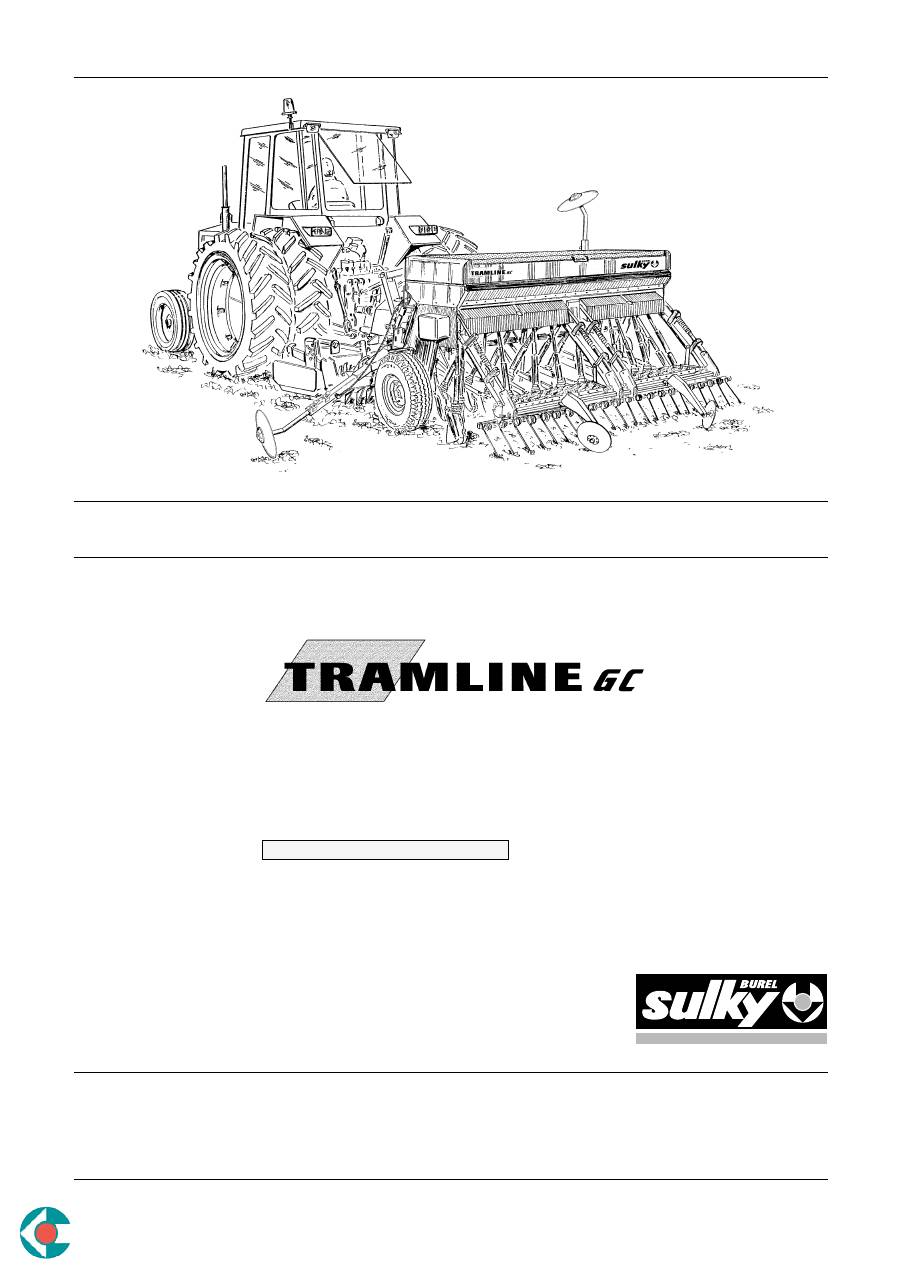
Sulky Burel S.A.
BP 92111 - rue Fabien Burel
35221 Châteaubourg Cedex- FRANCE
Tél: 02.99.00.84.84 - Fax: 02.99.62.39.38
Site Internet : www.sulky-burel.com
e-mail : info@sulky-burel.com
ÏÅÐÅÄ ÈÑÏÎËÜÇÎÂÀÍÈÅÌ
ÌÀØÈÍÛ ÂÍÈÌÀÒÅËÜÍÎ
ÏÐÎ×ÒÈÒÅ ÐÓÊÎÂÎÄÑÒÂÎ!
Réf: 400
302
-
FR GB RU
/GC/A-04
S
OMMAIRE
TRAMLINE GC
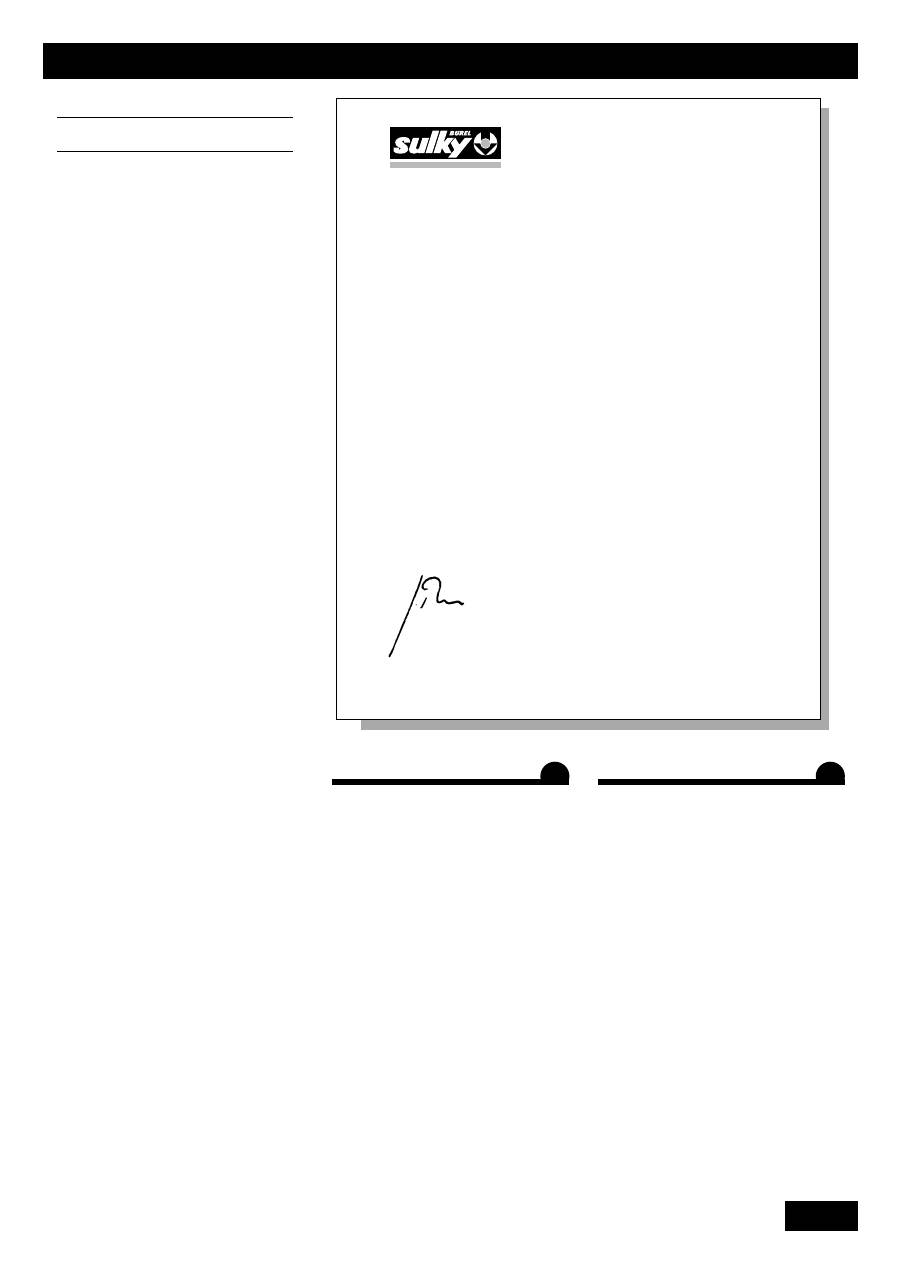
Cher Utilisateur
Dear Customer,
Thank you for choosing the DPX PRIMA
fertilizer spreader.
To ensure correct operation, and to get the
most out of your spreader, we recommend
that you read these instructions carefully
.
Please do not hesitate to give us your
suggestions and comments based on y
our
experience. They are always useful for
improving our products.
We would be grateful if you could return
the duly completed guarantee coupon.
We hope your fertilizer spreader will
provide long and trouble-free service.
Yours sincerely.
J. BUREL
Chairman and Managing Director
Óâàæàåìûé ïîêóïàòåëü,
Áëàãîäàðèì Âàñ çà òî, ÷òî Âû âûáðàëè
ðàçáðàñûâàòåëü óäîáðåíèé DPX PRIMA.
Äëÿ îáåñïå÷åíèÿ ïðàâèëüíîé
ýêñïëóàòàöèè è îïòèìàëüíîãî
èñïîëüçîâàíèÿ ðàçáðàñûâàòåëÿ
óäîáðåíèé ðåêîìåíäóåì Âàì
âíèìàòåëüíî îçíàêîìèòüñÿ ñ äàííîé
èíñòðóêöèåé.
Ïðîñèì ïðèñûëàòü íàì ñâîè ïðåäëîæåíèÿ
è êîììåíòàðèè, ñâÿçàííûå ñ
ýêñïëóàòàöèåé äàííîãî óñòðîéñòâà. Îíè
ïîìîãóò íàì ïîâûñèòü êà÷åñòâî íàøåé
ïðîäóêöèè.
Áóäåì áëàãîäàðíû çà ñâîåâðåìåííî
âîçâðàùåííûé çàïîëíåííûé ãàðàíòèéíûé
òàëîí.
Íàäååìñÿ, ÷òî ðàçáðàñûâàòåëü
óäîáðåíèé áóäåò ðàáîòàòü äîëãî è áåç
ïîëîìîê.
Æ.Áþðåëü,
Ïðåçèäåíò è Äèðåêòîð-ðàñïîðÿäèòåëü
êîìïàíèè
1
Dear Customer
Cher Client,
Vous avez choisi l’Epandeur DPX PRIMA, et nous vous
remercions de votre confiance pour notre matériel.
Pour une bonne utilisation, et pour tirer profit de toutes
les capacités de votre épandeur, nous vous recommandons
de lire attentivement cette notice.
De par votre expérience, n’hésitez pas à nous faire part
de vos observations et suggestions, toujours utiles pour
l’amélioration de nos produits.
Nous vous saurions gré de nous retourner le bon de
Garantie dûment rempli.
En vous souhaitant bon usage de votre épandeur d’engrais,
Veuillez agréer, Cher Client, l’assurance de nos meilleurs
sentiments.
J. BUREL
Président Directeur Général
GB
Óâàæàåìûé Ïîêóïàòåëü
RUS
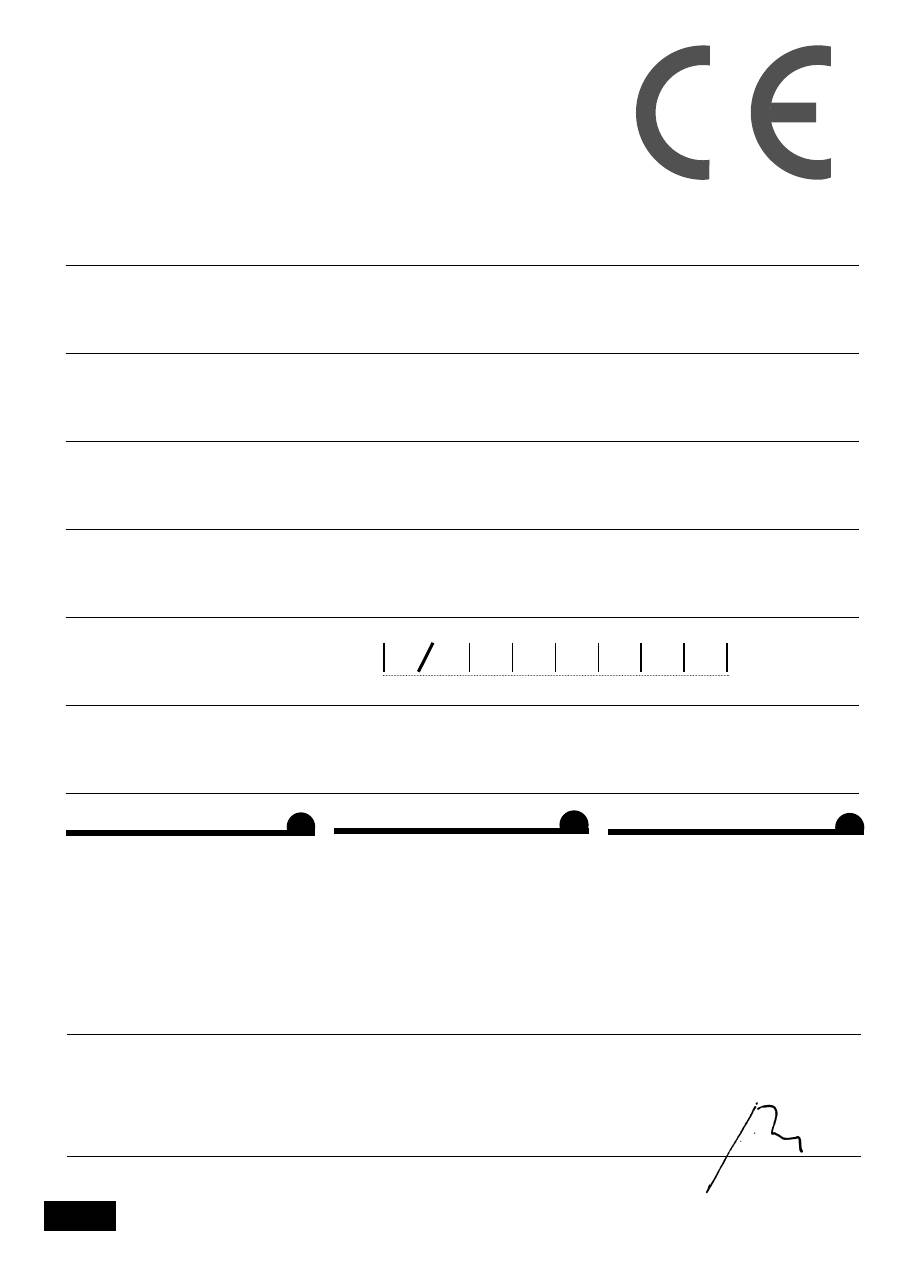
2
Déclaration de Conformité
Declaration of Conformity
Ñåðòèôèêàò ñîîòâåòñòâèÿ
Selon Article 5 annexe 2 point A de la directive européene 89/392/CE et additif
Following article 5 annex 2 poInt A of the Directive 89/392/ EEC and additions
Ñòàòüÿ 5 ïðèëîæåíèå 2 ïóíêò À Äèðåêòèâû 89/392/ÅÝÑ è äîïîëíåíèÿ
SULKY BUREL S.A
BP4 - 35221 Châteaubourg Cedex -
Ôðàíöèÿ
Nom du Fabricant :
Manufacturer’s name:
Ïðîèçâîäèòåëü:
Nom de son Mandataire :
Representative’s name:
Ïðåäñòàâèòåëü:
Description de la Machine :
-
Machine Description:
-
Îïèñàíèå ìàøèíû:
-
Type :
Type:
Òèï:
Semoir à grains
Seed drill
Ñåÿëêà
TRAMLINE GC
Numéro de Série :
Serial number:
Ñåðèéíûé íîìåð:
Accessoires :
-
Accessories:
-
Êîìïëåêòóþùèå äåòàëè:
-
-
Fait à Châteaubourg le 1er Janvier 1996
Established in Châteaubourg, on 1st January 1996
Óòâåðæäåíî â Øàòåáóðãå 1 ÿíâàðÿ 1996
Signed:
Ïîäïèñü:
J. BUREL
Président Directeur Général
Managing Director
Ãåíåðàëüíûé äèðåêòîð
F
GB
La machine répond aux
dispositions suivantes :
DIRECTIVE MACHINE
EUROPÉENNE 89/392 CEE
89/336 CEM
Les normes européennes suivantes ont
été utilisées :
NF EN 292-1 NF EN 292-2
NF EN 294 NF EN 1553
The Machine complies with the revelant
essential health and safety
requirements of the
Directive 89/392/EEC
89/336/EMC
The following transposed harmonised
standards and/or technical
specifications have been used:
EN 292 part 1 EN 292 part 2
EN 294
EN 1553
Ìàøèíà ñîîòâåòñòâóåò îáÿçàòåëüíûì
òðåáîâàíèÿì ê èñïðàâíîñìó ñîñòîÿíèþ
Äèðåêòèâû 89/392/ÅÝÑ
89/336/ÅÌÑ
EN 292 ÷àñòü 1 EN 292 ÷àñòü 2
EN 294 EN 1553
áåçîïàñíîñòè
Áûëè èñïîëüçîâàíû ñëåäóþùèå
ïðåîáðàçîâàííûå è óíèôèöèðîâàííûå ñòàíäàðòû:
RUS
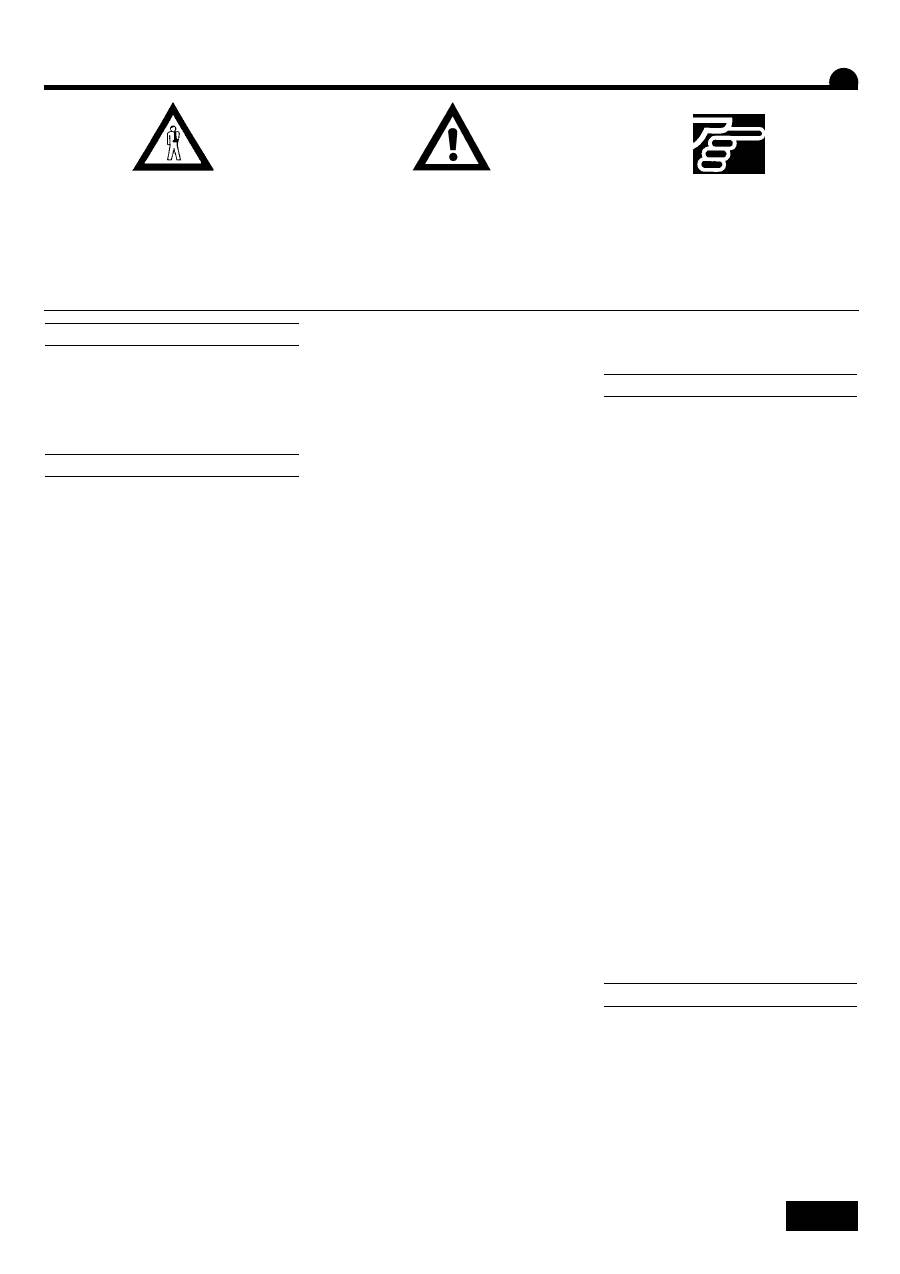
3
PRESCRIPTIONS GÉNÉRALES DE SÉCURITÉ
Avant chaque utilisation et mise en service de
l’ensemble tracteur-machine, s’assurer de sa
conformité avec la réglementation en matière de
sécurité du travail et avec les dispositions du Code
de la Route.
GÉNÉRALITÉS
1 -
Respecter, en plus des instructions contenues
dans cette notice, la législation relative aux
prescriptions de sécurité et de prévention des
accidents.
2 -
Les avertissements apposés sur la machine
fournissent des indications sur les mesures de
sécurité à observer et contribuent à éviter les
accidents.
3 -
Lors de la circulation sur la voie publique,
respecter les prescriptions du Code de la Route.
4 -
Avant de commencer le travail, l’utilisateur
devra se familiariser obligatoirement avec les
organes de commande et de manœuvre de la
machine et leurs fonctions respectives. En cours
de travail, il sera trop tard pour le faire.
5 -
L’utilisateur doit éviter de porter des vêtements
flottants qui risqueraient d’être happés par des
éléments en mouvement.
6 -
Il est recommandé d’utiliser un tracteur équipé
d’une cabine ou d’un arceau de sécurité, aux
normes en vigueur.
7 -
Avant la mise en route de la machine et le
démarrage des travaux, contrôler les abords
immédiats (enfant !).
Veiller à avoir une visibilité suffisante ! Eloigner
toute personne ou animal de la zone de danger de
la machine (projections !).
8 -
Le transport de personnes ou d’animaux sur la
machine lors du travail ou lors des déplacements
est strictement interdit.
9 -
L’accouplement de la machine au tracteur ne
doit se faire que sur les points d’attelage prévus à
cet effet conformément aux normes de sécurité
en vigueur.
10 -
La prudence est de rigueur lors de l’attelage
de la machine au tracteur et lors de son
désaccouplement !
11 -
Avant d’atteler la machine, il conviendra de
s’assurer que le lestage de l’essieu avant du
tracteur est suffisant. La mise en place des masses
de lestage doit se faire sur les supports prévus à
cet effet conformément aux prescriptions du
constructeur du tracteur.
12 -
Respecter la charge à l’essieu maximum et le
poids total roulant autorisé en charge.
13 -
Respecter le gabarit maximum sur la voie
publique.
14 -
Avant de s’engager sur la voie publique,
veiller à la mise en place et au bon
fonctionnement des protecteurs et dispositifs de
signalisation (lumineux, réfléchissants…) exigés
par la loi.
15 -
Toutes les commandes à distance (corde,
câble, tringle, flexible…) doivent être positionnées
de telle sorte qu’elles ne puissent déclencher
accidentellement une manœuvre génératrice de
risque d’accident ou de dégâts.
16 -
Avant de s’engager sur la voie publique,
placer la machine en position de transport,
conformément aux indications du constructeur.
17 -
Ne jamais quitter le poste de conduite
lorsque le tracteur est en marche.
18 -
La vitesse et le mode de conduite doivent
toujours être adaptés aux terrains, routes et
chemins. En toute circonstance, éviter les
brusques changements de direction.
19 -
La précision de la direction, l’adhérence du
tracteur, la tenue de route et l’efficacité des
dispositifs de freinage sont influencées par des
facteurs tels que : poids et nature de la machine
attelée, lestage de l’essieu avant, état du terrain ou
de la chaussée. Il est donc impératif de veiller au
respect des règles de prudence dictées par
chaque situation.
20 -
Redoubler de prudence dans les virages en
tenant compte du porte-à-faux, de la longueur, de
la hauteur et du poids de la machine ou de la
remorque attelée.
21 -
Avant toute utilisation de la machine,
s’assurer que tous les dispositifs de protection
sont en place et en bon état. Les protecteurs
endommagés doivent être immédiatement
remplacés.
22 -
Avant chaque utilisation de la machine,
contrôler le serrage des vis et des écrous, en
particulier de ceux qui fixent les outils (disques,
palettes, déflecteurs…). Resserrer si nécessaire.
23 -
Ne pas stationner dans la zone de manœuvre
de la machine.
24 -
Attention ! Des zones d’écrasement et de
cisaillement peuvent exister sur les organes
commandés à distance, notamment ceux asservis
hydrauliquement.
25 -
Avant de descendre du tracteur, ou
préalablement à toute intervention sur la machine,
couper le moteur, retirer la clé de contact et
attendre l’arrêt complet de toutes les pièces en
mouvement.
26 -
Ne pas stationner entre le tracteur et la
machine sans avoir préalablement serré le frein de
parcage et/ou avoir placé des cales sous les
roues.
27 -
Avant toute intervention sur la machine,
s’assurer que celle-ci ne puisse être mise en route
accidentellement.
28 -
Ne pas utiliser l’anneau de levage pour lever
la machine lorsqu’elle est remplie.
UTILISATION CONFORME DE LA MACHINE
Le Semoir ne doit être utilisé que pour les travaux
pour lesquels il a été conçu.
En cas de dommage lié à l’utilisation de la
machine hors du cadre des applications spécifiées
par le constructeur, la responsabilité de celui-ci
sera entièrement dégagée.
Toute extrapolation de la destination d’origine de la
machine se fera aux risques et périls de
l’utilisateur.
L’utilisation conforme de la machine implique
également :
- le respect des prescriptions d’utilisation,
d’entretien et de maintenance édictées par le
constructeur,
- l’utilisation exclusive de pièces de rechange,
d’équipements et d’accessoires d’origine ou
préconisés par le constructeur.
Le Semoir ne doit être utilisé, entretenu et réparé
que par des personnes compétentes, familiarisées
avec les caractéristiques et modes d’utilisation de
la machine. Ces personnes doivent aussi être
informées des dangers auxquels elles pourraient
être exposées.
L’utilisateur est tenu au respect scrupuleux de la
réglementation en vigueur en matière de :
- prévention contre les accidents,
- sécurité du travail (Code du Travail),
- circulation sur la voie publique (Code de la
Route).
- Il lui est fait obligation d’observer strictement les
avertissements apposés sur la machine.
- Toute modification de la machine effectuée par
l’utilisateur lui-même ou toute autre personne,
sans l’accord écrit préalable du constructeur
engagera la responsabilité du propriétaire du
matériel modifié.
- Le bruit créé par la machine n’excède pas 70
décibels.
ATTELAGE
1 -
Lors de l’attelage de la machine au tracteur ou
de sa dépose, placer le levier de commande du
relevage hydraulique dans une position telle que
toute entrée en action du relevage ne puisse
intervenir de façon inopinée.
2 -
Lors de l’attelage de la machine au relevage 3
points du tracteur, veiller à ce que les diamètres
des broches ou tourillons correspondent bien aux
diamètres des rotules du tracteur.
Prescriptions de sécurité
Risque d’accident Risque d’endommager la machine Faciliter le travail
Ces symboles sont utilisés dans cette notice chaque fois que des recommandations concernent votre sécurité, celle d’autrui ou le bon
fonctionnement de la machine.
Transmettez impérativement ces recommandations à tout utilisateur de la machine.
F
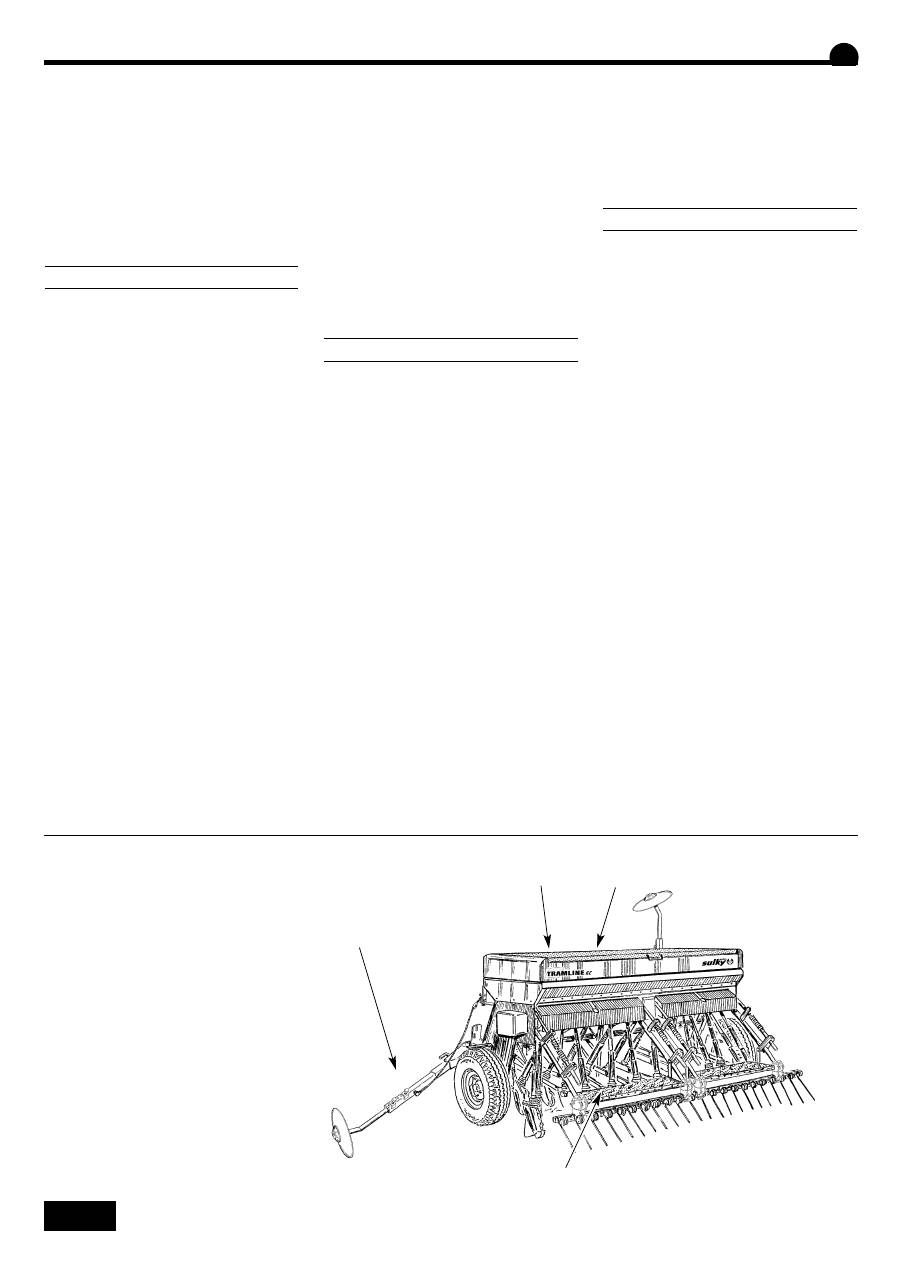
4
3 -
Attention ! Dans la zone de relevage 3 points, il
existe des risques d’écrasement et de cisaillement!
4 -
Ne pas se tenir entre le tracteur et la machine
lors de la manœuvre du levier de commande
extérieur du relevage.
5 -
Au transport la machine doit être stabilisée par
les tirants de rigidification du relevage pour éviter
tout flottement et débattement latéral.
6 -
Lors du transport de la machine en position
relevée, verrouiller le levier de commande du
relevage.
ORGANES D’ANIMATION
(Prises de force et arbres de transmission à
cardans)
1 -
N’utiliser que les arbres de transmission à
cardans fournis avec la machine ou préconisés par
le constructeur.
2 -
Les protecteurs des prises de force et des
arbres de transmission à cardans doivent toujours
être en place et en bon état.
3 -
Veiller au recouvrement correct des tubes des
arbres de transmission à cardans, aussi bien en
position de travail qu’en position de transport.
4 -
Avant de connecter ou de déconnecter un
arbre de transmission à cardans, débrayer la prise
de force, couper le moteur et retirer la clé de
contact.
5 -
Si l’arbre de transmission à cardans primaire
est équipé d’un limiteur de couple ou d’une roue
libre, ceux-ci doivent impérativement être montés
sur la prise de force de la machine.
6 -
Veiller toujours au montage et au verrouillage
corrects des arbres de transmission à cardans.
7 -
Veiller toujours à ce que les protecteurs des
arbres de transmission à cardans soient
immobilisés en rotation à l’aide des chaînettes
prévues à cet effet.
8 -
Avant d’embrayer la prise de force, s’assurer
que le régime choisi et le sens de rotation de la
prise de force sont conformes aux prescriptions du
constructeur.
9 -
Avant d’embrayer la prise de force, s’assurer
qu’aucune personne ou animal ne se trouve à
proximité de la machine.
10 -
Débrayer la prise de force lorsque les limites
de l’angle de l’arbre de transmission à cardans
prescrites par le constructeur risquent d’être
dépassées.
11 -
Attention ! Après le débrayage de la prise de
force, les éléments en mouvement peuvent
continuer à tourner quelques instants encore. Ne
pas s’en approcher avant immobilisation totale.
12 -
Lors de la dépose de la machine, faire
reposer les arbres de transmission à cardans sur
les supports prévus à cet effet.
13 -
Après avoir déconnecté l’arbre de
transmission à cardans de la prise de force du
tracteur, celle-ci doit être recouverte de son
capuchon protecteur.
14 -
Les protecteurs de prise de force et d’arbres
de transmission à cardans endommagés doivent
être remplacés immédiatement.
CIRCUIT HYDRAULIQUE
1 -
Attention ! Le circuit hydraulique est sous
pression.
2 -
Lors du montage de vérins ou de moteurs
hydrauliques, veiller attentivement au branchement
correct des circuits, conformément aux directives
du constructeur.
3 -
Avant de brancher un flexible au circuit
hydraulique du tracteur, s’assurer que les circuits
côté tracteur et côté machine ne sont pas sous
pression.
4 -
Il est vivement recommandé à l’utilisateur de la
machine de suivre les repères d’identification sur
les raccords hydrauliques entre le tracteur et la
machine afin d’éviter des erreurs de branchement.
Attention ! Il y a risque d’interversion des fonctions
(par exemple : relever/abaisser).
5 -
Contrôler une fois par an les flexibles
hydrauliques :
. Blessure de la couche extérieure
. Porosité de la couche extérieure
. Déformation sans pression et sous pression
. Etat des raccords et des joints
La durée d’utilisation maximum des flexibles est de
6 ans. Lors de leur remplacement, veiller à n’utiliser
que des flexibles de caractéristiques et de qualité
prescrits par le constructeur de la machine.
6 -
Lors de la localisation d’une fuite, il conviendra
de prendre toute précaution visant à éviter les
accidents.
7 -
Tout liquide sous pression, notamment l’huile
du circuit hydraulique, peut perforer la peau et
occasionner de graves blessures ! En cas de
blessure, consulter de suite un médecin ! Il y a
danger d’infection !
8 -
Avant toute intervention sur le circuit
hydraulique, abaisser la machine, mettre le circuit
hors pression, couper le moteur et retirer la clé de
contact.
ENTRETIEN
1 -
Avant tous travaux de maintenance, d’entretien
ou de réparation, ainsi que lors de la recherche de
l’origine d’une panne ou d’un incident de
fonctionnement, il faut impérativement que la prise
de force soit débrayée, que le moteur soit coupé
et la clé de contact retirée.
2 -
Contrôler régulièrement le serrage des vis et
des écrous. Resserrer si nécessaire !
3 -
Avant de procéder à des travaux d’entretien
sur une machine en position relevée, étayer celle-
ci à l’aide d’un moyen approprié.
4 -
Lors du remplacement d’une pièce travaillante,
(pale pour les distributeurs ou socs pour les
semoirs), mettre des gants de protection et
n’utiliser qu’un outillage approprié.
5 -
Pour la protection de l’environnement, il est
interdit de jeter ou de déverser les huiles, graisses
et filtres en tout genre. Les confier à des
entreprises spécialisées dans leur récupération.
6 -
Avant toute intervention sur le circuit
électrique, déconnecter la source d’énergie.
7 -
Les dispositifs de protection susceptibles
d’être exposés à une usure doivent être contrôlés
régulièrement. Les remplacer immédiatement s’ils
sont endommagés.
8 -
Les pièces de rechange doivent répondre aux
normes et caractéristiques définies par le
constructeur. N’utiliser que des pièces de
rechange Sulky !
9 -
Avant d’entreprendre des travaux de soudure
électrique sur le tracteur ou la machine attelée,
débrancher les câbles de l’alternateur et de la
batterie.
10 -
Les réparations affectant les organes sous
tension ou pression (ressorts, accumulateurs de
pression...) impliquent une qualification suffisante
et font appel à un outillage spécifique ; aussi ne
doivent-elles être effectuées que par un personnel
qualifié.
F
DANGER
l
Zone de fonctionnement des traceurs
m
Arbre d’agitateur en rotation
n
Risque d’écrasement attelage
o
Ne pas stationner sur la passerelle
l
m
n
o
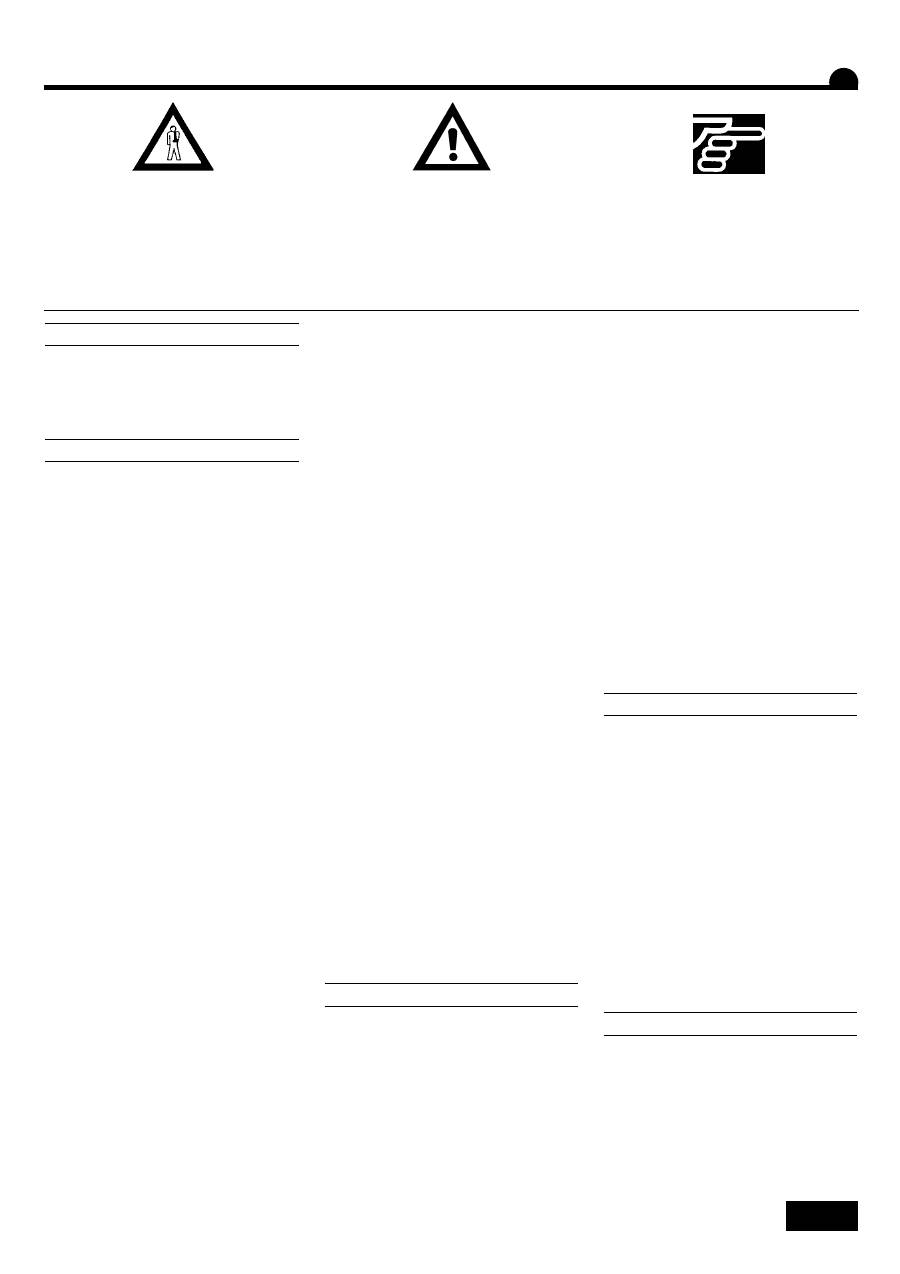
5
GENERAL SAFETY REGULATIONS
Every time the tractor/machine assembly is to be
started up and used, you should ensure
beforehand that it complies with current legislation
on safety at work and Road Traffic regulations.
GENERAL
1 -
In addition to the instructions contained in this
manual, legislation relating to safety instructions
and accident prevention should be complied with.
2 -
Warnings affixed to the machine give
indications regarding safety measures to be
observed and help to avoid accidents.
3 -
When travelling on public roads, abide by the
provisions of the Highway Code.
4 -
Before starting work, it is essential that the
user familiarizes himself with the control and
operating elements of the machine and their
respective functions. When the machine is
running, it may be too late.
5 -
The user should avoid wearing loose clothing
which may be caught up in the moving parts.
6 -
We recommend using a tractor with a safety
cab or roll bar conforming to standards in force.
7 -
Before starting up the machine and beginning
work, check the immediate surroundings,
particularly for children. Make sure that visibility is
adequate. Clear any persons or animals out of the
danger zone.
8 -
It is strictly forbidden to transport any persons
or animals on board the machine whether it is in
operation or not.
9 -
The machine should only be coupled up to the
tractor at the specially provided towing points and
in accordance with applicable safety standards.
10 -
Extreme care must be taken when coupling
or uncoupling the machine from the tractor.
11 -
Before hitching up the machine, ensure that
the front axle of the tractor is sufficiently
weighted. Ballast weights should be fitted to the
special supports in accordance with the
instructions of the tractor manufacturer.
12 -
Do not exceed the maximum axle weight or
the gross vehicle weight rating.
13 -
Do not exceed the maximum authorized
dimensions for using public roads.
14 -
Before entering a public road, ensure that
the protective and signalling devices (lights,
reflectors, etc.) required by law are fitted and
working properly.
15 -
All remote controls (cords, cables, rods,
hoses, etc.) must be positioned so that they
cannot accidentally set off any manoeuvre which
may cause an accident or damage.
16 -
Before entering a public road, place the
machine in the transport position, in accordance
with the manufacturer’s instructions.
17 -
. Never leave the driver’s position whilst the
tractor is running.
18 -
The speed and the method of operation must
always be adapted to the land, roads and paths.
Avoid sudden changes of direction under all
circumstances.
19 -
Precision of the steering, tractor adhesion,
road holding and effectiveness of the braking
mechanism are influenced by factors such as the
weight and nature of the machine being towed,
the front axle stage and the state of the land or
path. It is essential, therefore, that the appropriate
care is taken for each situation.
20 -
Take extra care when cornering, taking
account of the overhang, length, height and
weight of the machine or trailer being towed.
21 -
Before using the machine, ensure that all
protective devices are fitted and in good condition.
Damaged protectors should be replaced
immediately.
22 -
Before using the machine, check that nuts
and screws are tight, particularly those for
attaching tools (discs, flickers, deflectors, etc.).
Tighten if necessary.
23 -
Do not stand in the operating area of the
machine.
24 -
Caution! Be aware of any crushing and
shearing zones on remote-controlled and
particularly hydraulically-controlled parts.
25 -
Before climbing down from the tractor, or
before any operation on the machine, turn off the
engine, remove the key from the ignition and wait
until all moving parts have come to a standstill.
26 -
Do not stand between the tractor and the
machine until the handbrake has been applied
and/or the wheels have been wedged.
27 -
. Before any operation on the machine, ensure
that it
cannot be started up accidentally.
28 -
Do not use the lifting ring to lift the machine
when it is loaded.
PROPER USE OF THE MACHINE
The Seed drill must only be used for tasks for
which it has been designed.
The manufacturer will not be liable for any damage
caused by using the machine for applications
other than those specified by the manufacturer.
Using the machine for purposes other than those
originally intended will be done so entirely at the
user’s risk.
Proper use of the machine also implies:
- complying with instructions on use, care and
maintenance provided by the manufacturer;
- using only original or manufacturer
recommended spare parts, equipment and
accessories.
The Seed drill must only be operated, maintained
and repaired by competent persons, familiar with
the specifications and methods of operation of the
machine. These persons must also be informed of
the dangers to which they may be exposed.
The user must strictly abide by current legislation
regarding:
- accident prevention;
- safety at work (Health and Safety Regulations);
- transport on public roads (Road Traffic
Regulations).
Strict compliance with warnings affixed to the
machine is obligatory.
The owner of the equipment shall become liable
for any damage resulting from alterations made to
the machine by the user or any other person,
without the prior written consent of the
manufacturer.
The noise created by the machine does not
exceed 70 decibels.
HITCHING
1 -
When hitching or unhitching the machine from
the tractor, place the control lever of the hydraulic
lift in such a position that the lifting mechanism
cannot be activated accidentally.
2 -
When hitching the machine to the three-point
lifting mechanism of the tractor, ensure that the
diameters of the pins or gudgeons correspond to
the diameter of the tractor ball joints.
3 -
Caution! In the three-point lifting zone, there
may be a danger of crushing and shearing.
4 -
Do not stand between the tractor and the
machine whilst operating the external lift control
lever.
5 -
When in transport, lifting mechanism stabilizer
bars must be fitted to the machine to avoid
floating and side movement.
6 -
When transporting the machine in the raised
position, lock the lift control lever.
DRIVE EQUIPMENT
(Power take-off and universal drive shafts)
1 -
Only use universal drive shafts supplied with
the machine or recommended by the
manufacturer.
2 -
Power take-off and universal drive shaft guards
must always be fitted and in good condition.
Safety regulations
Risk of accident
Risk of damage to the machine
Operating tip
These symbols are used in these instructions every time recommendations are provided concerning your safety, the safety of others or the
correct operation of the machine.
These recommendations must be given to all users of the machine.
GB
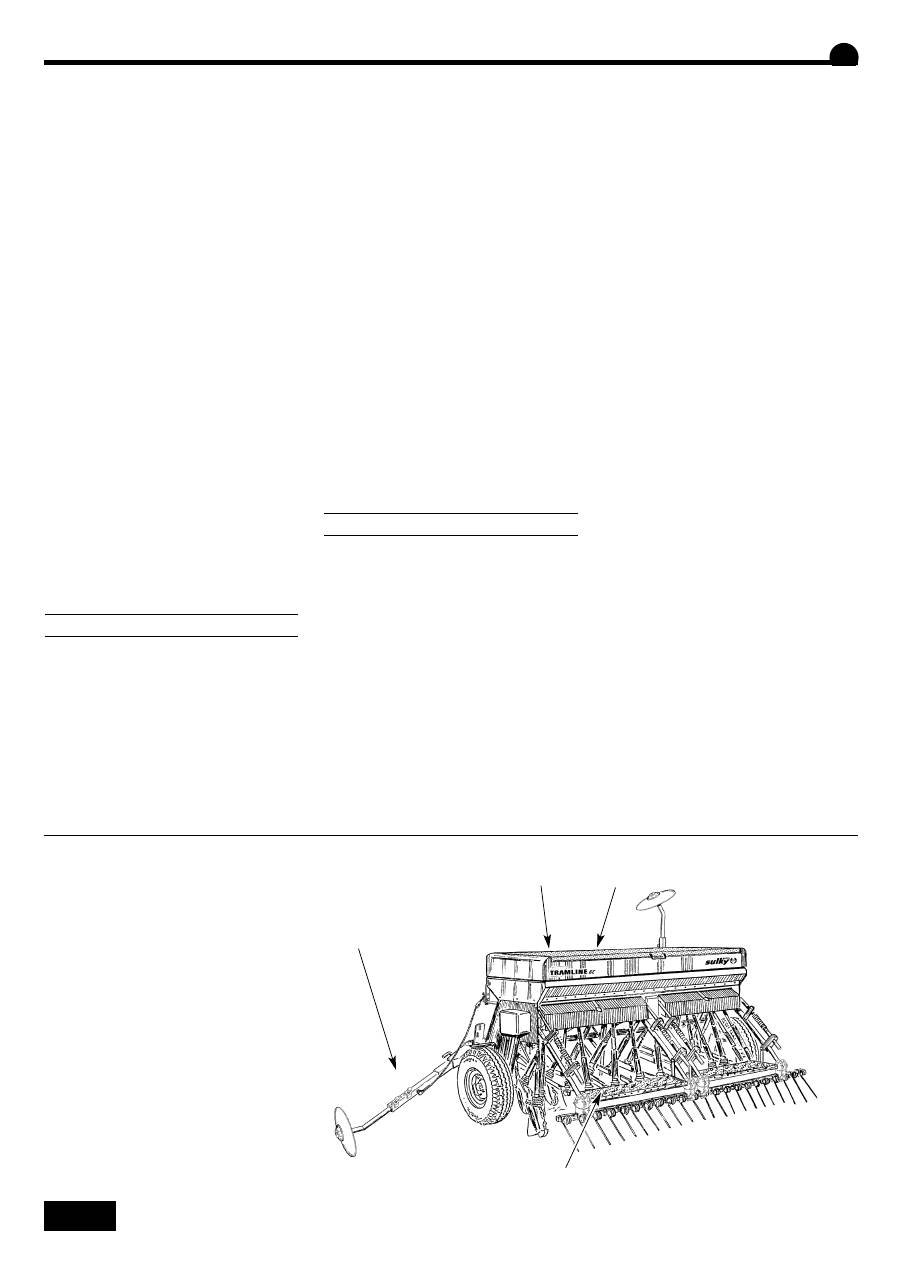
6
3 -
Ensure that the tubes of the universal drive
shafts are properly guarded, both in the working
position and in the transport position.
4 -
Before connecting or disconnecting a universal
drive shaft, disengage the power take-off, turn off
the engine and re-move the key from the ignition.
5 -
If the primary universal drive shaft is fitted with
a torque limiter or a free wheel, these must be
mounted on the machine power take-off.
6 -
Always ensure that universal drive shafts are
fitted and locked correctly.
7 -
Always ensure that universal drive shaft guards
are immobilized in rotation using the specially
provided chains.
8 -
Before engaging power take-off, ensure that
the speed selected and the direction of rotation of
the power take-off comply with the
manufacturer’s instructions.
9 -
Before engaging power take-off, ensure that
no persons or animals are close to the machine.
10 -
Disengage power take-off when the universal
drive shaft angle limits laid down by the
manufacturer are in danger of being exceeded.
11 -
Caution! When power take-off has been
disengaged, moving parts may continue to rotate
for a few moments. Do not approach until they
have reached a complete standstill.
12 -
On removal from the machine, rest the
universal drive shafts on the specially provided
supports.
13 -
After disconnecting the universal drive shafts
from the power take-off, the protective cap should
be fitted to the power take-off.
14 -
Damaged power take-off and universal drive
shaft guards must be replaced immediately.
HYDRAULIC CIRCUIT
1 -
Caution! The hydraulic circuit is pressurized.
2 -
When fitting hydraulic motors or cylinders,
ensure that the circuits are connected correctly in
accordance with the manufacturer’s guidelines.
3 -
Before fitting a hose to the tractor’s hydraulic
circuit, ensure that the tractor-side and machine-
side circuits are not pressurized.
4 -
The user of the machine is strongly
recommended to identify the hydraulic couplings
between the tractor and the machine in order to
avoid wrong connection. Caution! There is a
danger of reversing the functions (for example:
raise/lower).
5 -
Check hydraulic hoses once a year:
. Damage to the outer surface
. Porosity of the outer surface
. Deformation with and without pressure
. State of the fittings and seals
The maximum working life for hoses is 6 years.
When replacing them, ensure that only hoses with
the specifications and grade recommended by the
machine manufacturer are used.
6 -
When a leak is found, all necessary
precautions should be taken to avoid accidents.
7 -
Pressurized liquid, particularly hydraulic circuit
oil, may cause serious injury if it comes into
contact with the skin. If the case of injury, consult
a doctor immediately. There is a risk of infection.
8 -
Before any operation on the hydraulic circuit,
lower the machine, release the pressure from the
circuit, turn off the engine and remove the key
from the ignition.
MAINTENANCE
1 -
Before commencing any maintenance,
servicing or repair work, or before attempting to
locate the source of a breakdown or fault, it is
essential that the power take-off is disengaged,
the engine turned off and the key removed from
the ignition.
2 -
Check regularly that nuts and screws are not
loose. Tighten if necessary.
3 -
Before carrying out maintenance work on a
raised machine, prop it up using appropriate
means of support.
4 -
When replacing a working part (fertilizer
spreader blade or seed drill coulter), wear
protective gloves and only use appropriate tools.
5 -
To protect the environment, it is forbidden to
throw away oil, grease or filters of any kind. Give
them to specialist recycling firms.
6 -
Before operating on the electric circuit,
disconnect the power source.
7 -
Protective devices likely to be exposed to wear
and tear should be checked regularly. Replace
them immediately if they are damaged.
8 -
Spare parts should comply with the standards
and specifications laid down by the manufacturer.
Only use Sulky spare parts.
9 -
Before commencing any electric welding work
on the tractor or the towed machine, disconnect
the alternator and battery cables.
10 -
Repairs affecting parts under stress or
pressure (springs, pressure accumulators, etc.)
should be carried out by suitably qualified
engineers with special tools.
DANGER
l
Side marker operating zone
m
Rotating agitator shaft
n
Risk of pinching or crushing
o
Do not travel on the platform
GB
l
m
n
o
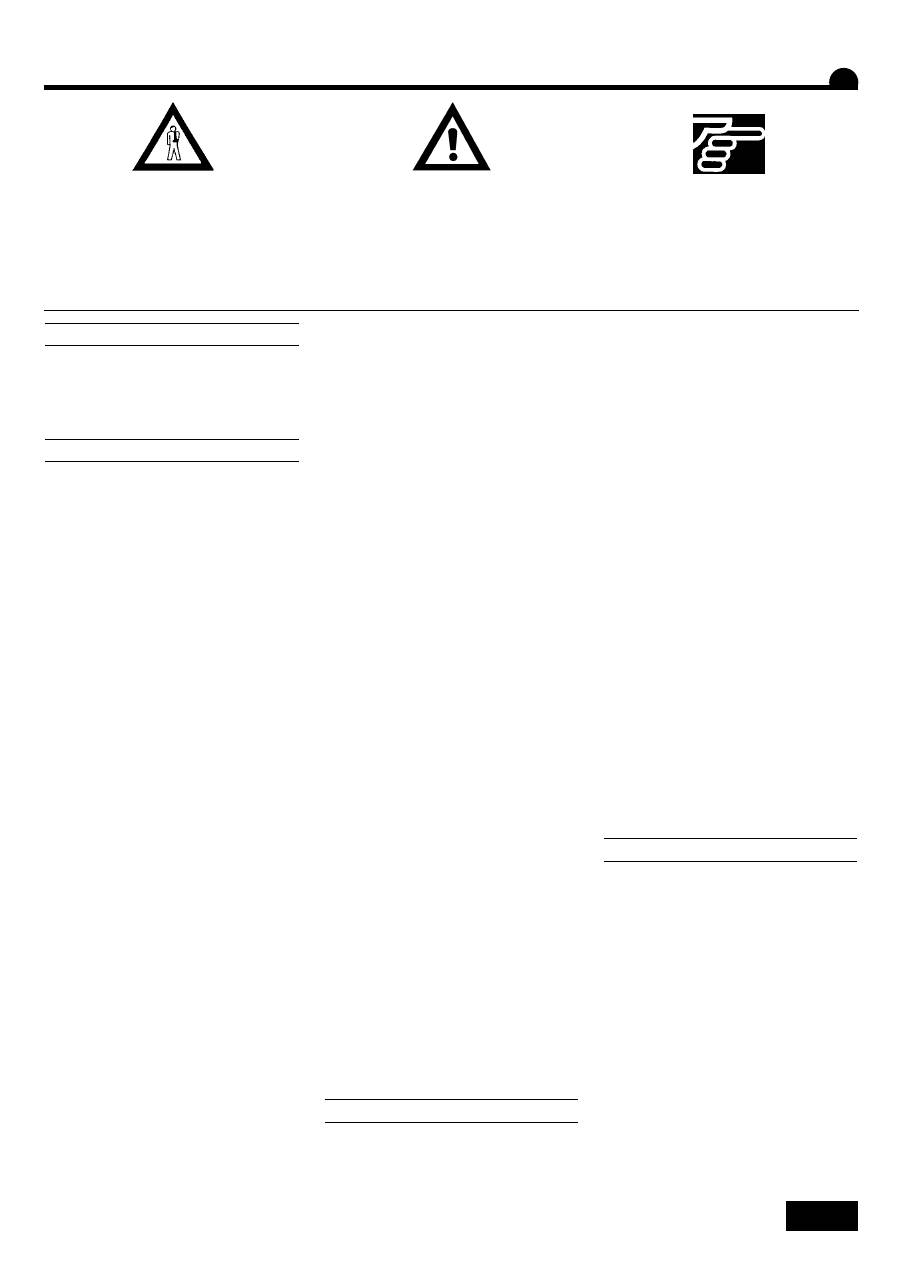
7
ÎÁÙÈÅ ÏÐÀÂÈËÀ ÒÅÕÍÈÊÈ ÁÅÇÎÏÀÑÍÎÑÒÈ
Ïåðåä êàæäûì âêëþ÷åíèåì è
èñïîëüçîâàíèåì òðàêòîðíîãî/ìàøèííîãî
àãðåãàòà çàðàíåå óáåäèòåñü, ÷òî åãî
ñîñòîÿíèå ñîîòâåòñòâóåò òåêóùåìó
çàêîíîäàòåëüñòâó ïî áåçîïàñíîñòè íà
ðàáîòå è ïðàâèëàì äîðîæíîãî äâèæåíèÿ.
ÎÁÙÈÅ ÏÐÀÂÈËÀ
1 - Êðîìå èíñòðóêöèé, âêëþ÷åííûõ â äàííîå
ðóêîâîäñòâî, íåîáõîäèìî ñëåäîâàòü
çàêîíîäàòåëüñòâó ïî èíñòðóêöèÿì
áåçîïàñíîñòè è ïðåäîòâðàùåíèþ íåñ÷àñòíûõ
ñëó÷àåâ.
2 - Ïðåäóïðåæäåíèÿ, ïðèëàãàåìûå ê
ìàøèíå, äàþò óêàçàíèÿ îòíîñèòåëüíî
ñîáëþäåíèÿ ìåð áåçîïàñíîñòè è ïîìîãàþò
èçáåæàòü íåñ÷àñòíûõ ñëó÷àåâ.
3 - Ïðè ïåðåìåùåíèè ïî äîðîãàì îáùåãî
ïîëüçîâàíèÿ ñîáëþäàéòå ïðàâèëà äîðîæíîãî
äâèæåíèÿ.
4 - Ïåðåä íà÷àëîì ðàáîòû ïîëüçîâàòåëþ
íåîáõîäèìî îçíàêîìèòüñÿ ñ ýëåìåíòàìè
óïðàâëåíèÿ è ðàáîòû ìàøèíû è èõ
ñîîòâåòñòâóþùèìè ôóíêöèÿìè. Êîãäà
ìàøèíà óæå ðàáîòàåò, ìîæåò áûòü ñëèøêîì
ïîçäíî.
5 - Ïîëüçîâàòåëü íå äîëæåí íîñèòü
ñâîáîäíóþ îäåæäó, êîòîðàÿ ìîæåò ïîïàñòü â
ïîäâèæíûå ÷àñòè ìàøèíû.
6 - Ìû ðåêîììåäóåì èñïîëüçîâàòü òðàêòîð ñ
áåçîïàñíîé êàáèíîé, ñîîòâåòñòâóþùåé
äåéñòâóþùèì ñòàíäàðòàì.
7 - Ïåðåä âêëþ÷åíèåì ìàøèíû è íà÷àëîì
ðàáîòû ïðîâåðüòå áëèæàéøèå îêðåñòíîñòè,
îñîáåííî íà íàëè÷èå äåòåé. Óáåäèòåñü, ÷òî
âèäèìîñòü îòâå÷àåò òðåáîâàíèÿì. Óäàëèòå
âñåõ ëþäåé è æèâîòíûõ èç îïàñíîé çîíû.
8 - Ïåðåâîçèòü ëþäåé íà ðàáîòàþùåé èëè
âûêëþ÷åííîé ìàøèíå ñòðîãî çàïðåùåíî.
9 - Ìàøèíà äîëæíà ñîåäèíÿòüñÿ ñ òðàêòîðîì
òîëüêî â ñïåöèàëüíûõ òî÷êàõ áóêñèðîâêè è â
ñîîòâåòñòâèè ñ ïðèìåíÿåìûìè ñòàíäàðòàìè
áåçîïàñíîñòè.
10 - Ïðè ñîåäèíåíèè è ðàçúåäèíåíèè
ìàøèíû è òðàêòîðà íåîáõîäèìî ñîáëþäàòü
îñîáóþ îñòîðîæíîñòü.
11 - Ïåðåä çàêðåïëåíèåì ìàøèíû
óáåäèòåñü, ÷òî ïåðåäíÿÿ îñü òðàêòîðà
äîñòàòî÷íî íàãðóæåíà. Áàëëàñòíûå ãðóçû
íåîáõîäèìî ïðèêðåïëÿòü ê ñïåöèàëüíûì
îïîðàì â ñîîòâåòñòâèè ñ èíñòðóêöèÿìè
ðóêîâîäñòâà ïî ýêñïëóàòàöèè ïðîèçâîäèòåëÿ
òðàêòîðà.
12 - Íå ïðåâûøàéòå ìàêñèìàëüíóþ íàãðóçêó
îñè è çíà÷åíèå ïîëíîãî âåñà ìàøèíû.
13 - Ïðè èñïîëüçîâàíèè íà äîðîãàõ îáùåãî
ïîëüçîâàíèÿ íå ïðåâûøàéòå ìàêñèìàëüíî
ðàçðåøåííûå ðàçìåðû.
14 - Ïåðåä âúåçäîì íà îáùåñòâåííóþ
äîðîãó óáåäèòåñü, ÷òî çàùèòíûå è
ñèãíàëüíûå ïðèáîðû (îãíè, îòðàæàòåëè è
ò.ä.), òðåáóåìûå çàêîíîì, óñòàíîâëåíû è
íîðìàëüíî ðàáîòàþò.
15 - Âñå óñòðîéñòâà äèñòàíöèîííîãî
óïðàâëåíèÿ (øíóðû, êàáåëè, ñòåðæíè,
øëàíãè è ò.ä.) äîëæíû áûòü ðàñïîëîæåíû
òàêèì îáðàçîì, ÷òîáû èñêëþ÷èòü
âîçìîæíîñòü îòöåïêè ïðè ìàíåâðèðîâàíèè,
êîòîðàÿ ìîæåò ñòàòü ïðè÷èíîé àâàðèè èëè
ïîâðåæäåíèÿ.
16 - Ïåðåä âúåçäîì íà îáùåñòâåííóþ
äîðîãó ïîñòàâüòå ìàøèíó â òðàíñïîðòíîå
ïîëîæåíèå â ñîîòâåòñòâèè ñ èíñòðóêöèÿìè
ïðîèçâîäèòåëÿ.
17 - Íå îñòàâëÿéòå âîäèòåëüñêîãî ìåñòà âî
âðåìÿ ðàáîòû òðàêòîðà.
18 - Ñêîðîñòü è ðåæèì ýêñïëóàòàöèè âñåãäà
äîëæíû ñîîòâåòñòâîâàòü çåìëå, äîðîãàì è
òðîïèíêàì. Íè ïðè êàêèõ îáñòîÿòåëüñòâàõ íå
ìåíÿéòå íàïðàâëåíèå ðåçêî.
19 - Íà òî÷íîñòü óïðàâëåíèÿ, ñöåïëåíèå
òðàêòîðà, óñòîé÷èâîñòü äâèæåíèÿ è
ýôôåêòèâíîñòü òîðìîçíîãî ìåõàíèçìà
âëèÿþò òàêèå ôàêòîðû, êàê âåñ è òèï
áóêñèðóåìîé ìàøèí, ïëîùàäêà ïåðåäíåé
îñè è ñîñòîÿíèå çåìëè èëè äîðîæêè.
Ïîýòîìó â ëþáîé ñèòóàöèè íåîáõîäèìî
ïðèíèìàòü ñîîòâåòñâóþùèå ìåðû.
20 - Áóäüòå îñîáåííî âíèìàòåëüíû íà
ïîâîðîòàõ, ó÷èòûâàéòå âûñòóïû, äëèíó,
âûñîòó è âåñ áóêñèðóåìîé ìàøèíû èëè
òðåéëåðà.
21 - Ïåðåä èñïîëüçîâàíèåì ìàøèíû
óáåäèòåñü, ÷òî âñå çàùèòíûå ïðèáîðû
óñòàíîâëåíû è íàõîäÿòñÿ â ðàáî÷åì
ñîñòîÿíèè. Ïîâðåæäåííûå îãðàäèòåëè
íåîáõîäèìî íåìåäëåííî çàìåíèòü.
22 - Ïåðåä èñïîëüçîâàíèåì ìàøèíû
ïðîâåðüòå, ÷òîáû ãàéêè è áîëòû áûëè
íàäåæíî ïðèêðó÷åíû, îñîáåííî íà
ñîåäèíåíèÿõ ñ îðóäèÿìè (äèñêàìè,
ìèãàëêàìè, îòðàæàòåëÿìè è ò.ä.). Ïðè
íåîáõîäèìîñòè ïîäêðóòèòå èõ.
23 - Íå ñòîéòå â ðàáî÷åé çîíå ìàøèíû.
24 - Âíèìàíèå! Ñëåäèòå çà ïîÿâëåíèåì çîí
ðàçäðîáëåíèÿ è ñðåçà íà ÷àñòÿõ ñ
äèñòàíöèîííûì è ÷àñòè÷íî ãèäðàâëè÷åñêèì
óïðàâëåíèåì.
25 - Ïåðåä ñïóñêîì èç òðàêòîðà èëè ïåðåä
ëþáîé ðàáîòîé ñ ìàøèíîé âûêëþ÷èòå
äâèãàòåëü, äîñòàíüòå êëþ÷ èç çàæèãàíèÿ è
ïîäîæäèòå ïîêà äâèæóùèåñÿ ÷àñòè íå
îñòàíîâÿòñÿ.
26 - Íå ñòîéòå ìåæäó òðàêòîðîì è ìàøèíîé
äî âêëþ÷åíèÿ ðó÷íîãî òîðìîçà è/èëè
çàêðåïëåíèÿ êîëåñ êëèíüÿìè.
27 - Ïåðåä ëþáîé ðàáîòîé ñ ìàøèíîé
óáåäèòåñü, ÷òî îíà íå ìîæåò ñëó÷àéíî
âêëþ÷èòüñÿ.
28 - Íå èñïîëüçóéòå ïîäú¸ìíîå êîëüöî äëÿ
ïîäúåìà íàãðóæåííîé ìàøèíû.
ÏÐÀÂÈËÜÍÎÅ ÈÑÏÎËÜÇÎÂÀÍÈÅ ÌÀØÈÍÛ
Èñïîëüçóéòå ñåÿëêó ïî íàçíà÷åíèþ.
Ïðîèçîäèòåëü íå íåñåò îòâåòñòâåííîñòè çà
ëþáûå ïîâðåæäåíèÿ, ïîÿâèâøèåñÿ â
ðåçóëüòàòå ïðèìåíåíèÿ â öåëÿõ, íå
óêàçàííûõ ïðîèçâîäèòåëåì.
Îòâåòñòâåííîñòü çà èñïîëüçîâàíèå ìàøèíû
íå ïî íàçíà÷åíèþ ïîëíîñòüþ íåñåò
ïîëüçîâàòåëü.
Ïðàâèëüíîå èñïîëüçîâàíèå ìàøèíû òàêæå
ïîäðàçóìåâàåò ñëåäóþùåå:
- îáåñïå÷åíèå ïîðèçâîäèòåëåì
îáñëóæèâàíèÿ è ðåìîíòà â ñîîòâåòñòâèè ñ
èíñòðóêöèÿìè ïî ýêñïëóàòàöèè;
- èñïîëüçîâàíèå òîëüêî ïîäëèííûõ ÷àñòåé,
îáîðóäîâàíèÿ è êîìïëåêòóþùèõ èëè
÷àñòåé, ðåêîììåíäîâàííûõ
ïðîèçâîäèòåëåì.
Òîëüêî êîìïåòåíòíûå ëþäè, çíàêîìûå ñî
ñïåöèôèêàöèÿìèè ìåòîäàìè ðàáîòû
ìàøèíû, ìîãóò ðàáîòàòü íà ìàøèíå,
îáñëóæèâàòü åå è ïðîèçâîäèòü ðåìîíò. Ýòè
ëþäè äîëæíû áûòü îçíàêîìëåíû ñ
âîçìîæíûìè îïàñíîñòÿìè. Ïîëüçîâàòåëü
äîëæåí ñòðîãî ïðèäåðæèâàòüñÿ òåêóùåãî
çàêîíîäàòåëüñòâà îòíîñèòåëüíî:
- ïðåäóïðåæäåíèÿ íåñ÷àñòíûõ ñëó÷àåâ;
- áåçîïàñíîñòè íà ðàáîòå (Íîðìû çäîðîâüÿ
è áåçîïàñíîñòè);
- äîðîã îáùåñòâåííîãî ïîëüçîâàíèÿ
(Ïðàâèëà äîðîæíîãî äâèæåíèÿ).
Íåîáõîäèìî ñòðîãî ñëåäîâàòü ìåðàì
áåçîïàñíîñòè, ïðèëàãàåìûì ê ìàøèíå.
Âëàäåëåö îáîðóäîâàíèÿ íåñåò
îòâåòñòâåííîñòü çà ëþáûå ïîâðåæäåíèÿ â
ðåçóëüòàòå èçìåíåíèé, âíåñåííûõ â
ìàøèíó ïîëüçîâàòåëåì èëè ëþáûì äðóãèì
÷åëîâåêîì áåç ïðåäâàðèòåëüíîãî
ïèñüìåííîãî ñîãëàñèÿ ïðîèçâîäèòåëÿ.
Øóì, ñîçäàâàåìûé ìàøèíîé, íå
ïðåâûøàåò 70 äåöèáåë.
ÑÖÅÏËÅÍÈÅ
1 - Ïðè ñöåïëåíèè èëè îòöåïëåíèè ìàøèíû
îò òðàêòîðà ïîìåñòèòå ðû÷àã óïðàâëåíèÿ
ãèäðàâëè÷åñêîãî ïîäú¸ìíèêà â òàêîå
ïîëîæåíèå, ÷òîáû ïîäú¸ìíûé ìåõàíèçì íå
ìîã ñëó÷àéíî âêëþ÷èòüñÿ.
2 - Ïðè ñöåïëåíèè ìàøèíû ñ òðåõîïîðíûì
ïîäúåìíûì ìåõàíèçìîì òðàêòîðà
óáåäèòåñü, ÷òî äèàìåòðû ùòèôòîâ èëè
íàâåñîê ñîîòâåòñòâóþò äèàìåòðó øàðîâûõ
íàêîíå÷íèêîâ òðàêòîðà.
3 - Âíèìàíèå! Â îáëàñòè òðåõîïîðíîãî
ïîäúåìíèêà ñóùåñòâóåò îïàñíîñòü
ðàçäðîáëåíèÿ è ñðåçà.
4 - Íå ñòîéòå ìåæäó ìàøèíîé è òðàêòîðîì
âî âðåìÿ ðàáîòû ñ âíåøíèì ðû÷àãîì
óïðàâëåíèÿ ïîäúìà.
5 - Ïðè òðàíñïîðòèðîâêå ñòàáèëèçàòîð
ïîäúåìíîãî ìåõàíèçìà äîëæåí áûòü
ïðèêðåïëåí ê ìàøèíå âî èçáåæàíèå
êîëåáàíèÿ è áîêîâîãî ïåðåìåùåíèÿ.
6 - Ïðè òðàíñïîðòèðîâêå ìàøèíû â
ïîäíÿòîì ïîëîæåíèè çàïðèòå ðû÷àã
óïðàâëåíèÿ ïîäúåìíèêà.
Ïðàâèëà òåõíèêè áåçîïàñíîñòè
Ðèñê òðàâìèðîâàíèÿ Ðèñê ïîâðåæäåíèÿ ìàøèíû Ñîâåòû ïî ðàáîòå
Ýòè ñèìâîëû èñïîëüçóþòñÿ â äàííûõ èíñòðóêöèÿõ ñ ðåêîììåäàöèÿìè ïî âàøåé áåçîïàñíîñòè,
áåçîïàñíîñòè äðóãèõ ëþäåé èëè ïðàâèëüíîé ðàáîòå ìàøèíû.
Äàííûå ðåêîììåíäàöèè íåîáõîäèìî ïðåäîñòàâèòü âñåì ïîëüçâàòåëÿì ìàøèíû.
RUS
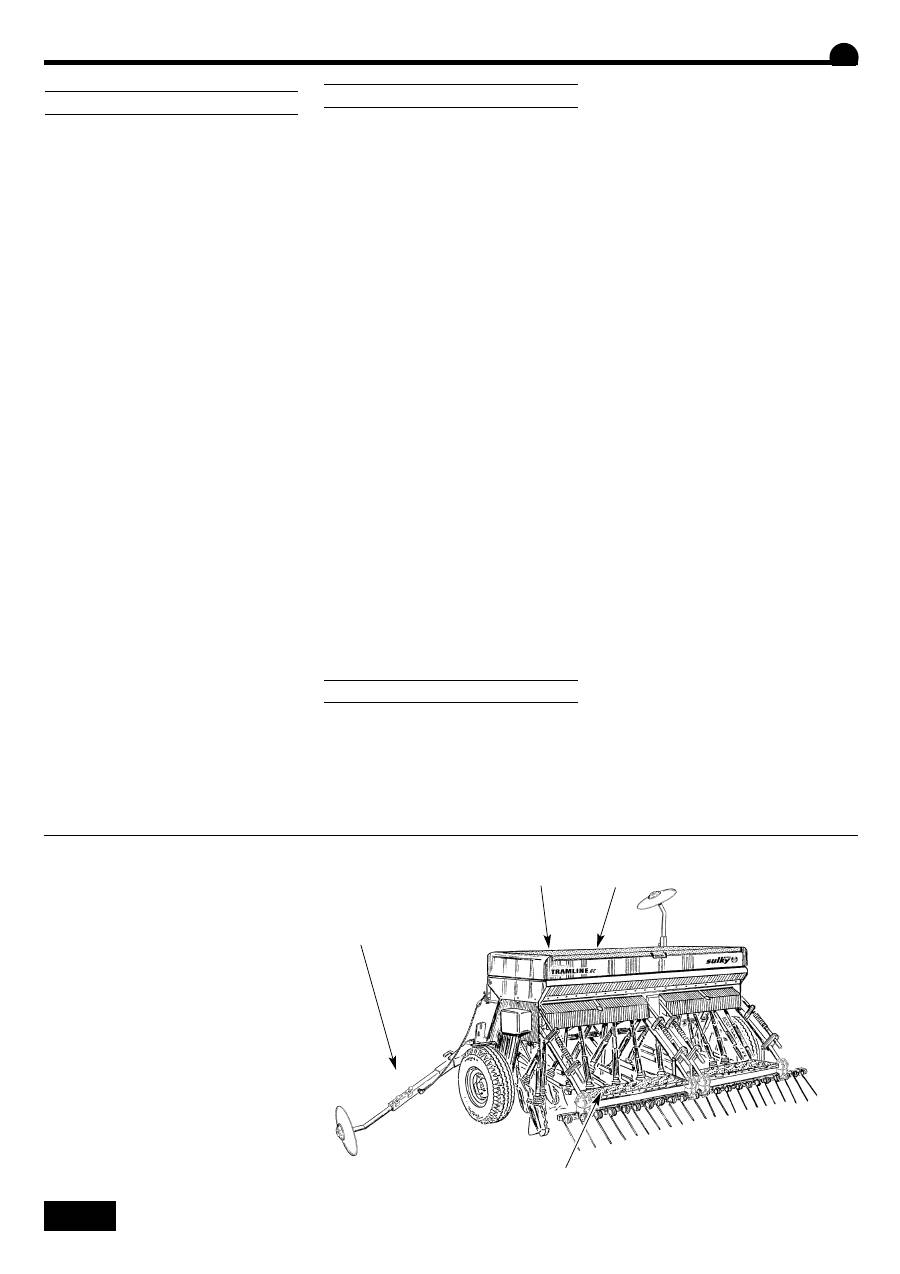
8
ÏÐÈÂÎÄÍÎÅ ÎÁÎÐÓÄÎÂÀÍÈÅ
(Ìåõàíèçì îòáîðà ìîùíîñòè è
óíèâåðñàëüíûå ïðèâîäíûå âàëû)
1 - Èñïîëüçóéòå òîëüêî óíèâåðñàëüíûå
ïðèâîäíûå âàëû, ïîñòàâëÿåìûå ñ ìàøèíîé
èëè ðåêîìåíäîâàííûå ïðîèçâîäèòåëåì.
2 - Ìåõàíèçì îòáîðà ìîùíîñòè è îãðàæäåíèÿ
óíèâåðñàëüíîãî ïðèâîäíîãî âàëà âñåãäà
äîëæíû áûòü çàêðåïëåíû è íàõîäèòüñÿ â
õîðîøåì ñîñòîÿíèè.
3 - Âíèìàòåëüíî ñëåäèòå çà òðóáêàìè
óíèâåðñàëüíîãî ïðèâîäíîãî âàëà â ðàáî÷åì
ñîñòîÿíèè è â òðàíñïîðòíîì ïîëîæåíèè.
4 - Ïåðåä ïîäñîåäèíåíèåì èëè
ðàññîåäèíåíèåì óíèâåðñàëüíîãî ïðèâîäíîãî
âàëà îòñîåäèíèòå ìåõàíèçì îòáîðà
ìîùíîñòè, âûêëþ÷èòå äâèãàòåëü è äîñòàíüòå
êëþ÷ èç çàæèãàíèÿ.
5 - Åñëè âåäóùèé óíèâåðñàëüíûé ïðèâîäíîé
âàë óñòàíîâëåí ñ îãðàíè÷èòåëåì âðàùàþùåãî
ìîìåíòà èëè ìóôòîé ñâîáîäíîãî õîäà, îíè
äîëæíû áûòü óñòàíîâëåíû íà ìåõàíèçìå
îòáîðà ìîùíîñòè.
6 - Âñåãäà ïðîâåðÿéòå, ÷òîáû óíèâåðñàëüíûå
ïðèâîäíûå âàëû áûëè ïðàâèëüíî
óñòàíîâëåíû è çàêðåïëåíû.
7 - Ñ ïîìîùüþ ñïåöèàëüíûõ öåïåé âñåãäà
çàêðåïëÿéòå óíèâåðñàëüíûå ïðèâîäíûå âàëû
òàê, ÷òîáû îíè íå ïîâîðà÷èâàëèñü.
8 - Ïåðåä âêëþ÷åíèåì ìåõàíèçìà îòáîðà
ìîùíîñòè óáåäèòåñü, ÷òî âûáðàííàÿ ñêîðîñòü
è íàïðàâëåíèå âðàùåíèÿ ìåõàíèçìà îòáîðà
ìîùíîñòè ñîîòâåòñòâóþò èíñòðóêöèÿì
ïðîèçâîäèòåëÿ.
9 - Ïåðåä âêëþ÷åíèåì ìåõàíèçìà îòáîðà
ìîùíîñòè óáåäèòåñü, ÷òî âáëèçè ìàøèíû íåò
ëþäåé èëè æèâîòíûõ.
10 - Åñëè ìåæîñåâîé óãîë óíèâåðñàëüíîãî
ïðèâîäíîãî âàëà ìîæåò ïðåâûñèòü ïðåäåëû,
óñòàíîâëåííûå ïðîèçâîäèòåëåì, îòêëþ÷èòå
ìåõàíèçì îòáîðà ìîùíîñòè.
11 - Âíèìàíèå! Ïîñëå îòêëþ÷åíèÿ ìàõàíèçìà
îòáîðà ìîùíîñòè äâèãàþùèåñÿ ÷àñòè ìîãóò
ïðîäîëæàòü âðàùàòüñÿ íåêîòîðîå âðåìÿ. Íå
ïðèáëèæàéòåñü äî òåõ ïîð, ïîêà îíè íå
ïîëíîñòüþ íå îñòàíîâÿòñÿ.
12 - Ïðè óäàëåíèè èç ìàøèíû ïîëîæèòå
óíèâåðñàëüíûå ïðèâîäíûå âàëû íà
ñïåöèàëüíûå ïîäñòàâêè.
13 - Ïîñëå îòñîåäèíåíèÿ óíèâåðñàëüíûõ
ïðèâîäíûõ âàëîâ îò ìåõàíèçìà îòáîðà
ìîùíîñòè íà íåãî íóæíî ïîñòàâèòü
ïðåäîõðàíèòåëüíûé êîëïàê.
14 - Ïîâðåæäåííûé ìåõàíèçì îòáîðà
ìîùíîñòè è óíèâåðñàëüíûå ïðèâîäíûå âàëû
1 - Âíèìàíèå! Ãèäðàâëè÷åñêàÿ ñõåìà
íàõîäèòñÿ ïîä äàâëåíèåì.
2 - Ïðè óñòàíîâêå ãèäðàñëè÷åñêèõ
äâèãàòåëåé èëè öèëèíäðîâ óáåäèòåñü, ÷òî
ñõåìû ïðàâèëüíî ïîäñîåäèíåíû â
ñîîòâåòñòâèè ñ ðóêîâîäñòâàìè
ïðîèçâîäèòåëÿ.
3 - Ïåðåä óñòàíîâêîé øëàíãà íà
ãèäðàâëè÷åñêóþ ñõåìó òðàêòîðà óáåäèòåñü,
÷òî áîêîâûå ñõåìû òðàêòîðà è ìàøèíû íå
íàõîäÿòñÿ ïîä äàâëåíèåì.
4 - Ïîëüçîâàòåëþ ìàøèíû íàñòîé÷èâî
ðåêîììåíäóåòñÿ òî÷íî îïðåäåëèòü
ãèäðàâëè÷åñêèå ñîåäèíåíèÿ òðàêòîðà è
ìàøèíû âî èçáåæàíèå íåïðàâèëüíîãî
ñîåäèíåíèÿ. Âíèìàíèå! Òàêæå ñóùåñòâóåò
îïàñíîñòü ïåðåïóòàòü ôóíêöèè (íàïðèìåð,
ïîäíÿòü/îïóñòèòü).
5 - Ïðîâåðÿéòå ãèäðàâëè÷åñêèå øëàíãè ðàç â
ãîä íà ïðåäìåò:
- Ïîâðåæäåíèé âíåøíåé ïîâåðõíîñòè
- Ïðîíèöàåìîñòè âíåøíèõ ïîâåðõíîñòåé
- Äåôîðìàöèè ïîä äàâëåíèåì è áåç
- Ñîñòîÿíèÿ äåòàëåé è ïëîìá
Ìàêñèìàëüíûé ñðîê ðàáîòû øëàíãîâ - 6 ëåò.
Ïðè èõ çàìåíå èñïîëüçóéòå òîëüêî øëàíãè
ñïåöèôèêàöèé è êëàññîâ, ðåêîììåíäîâàííûõ
ïðîèçâîäèòåëåì ìàøèíû.
6 - Ïðè îáíàðóæåíèè óòå÷êè íåîáõîäèìî
ïðèíÿòü âñå íåîáõîäèìûå ìåðû
ïðåäîñòîðîæíîñòè âî èçáåæàíèå íåñ÷àñòíûõ
ñëó÷àåâ.
7 - Æèäêîñòü ïîä äàâëåíèåì, à èìåííî,
ìàñëî ãèäðàâëè÷åñêèõ ñõåì ìîæåò íàíåñòè
ñåðüåçíûå ïîâðåæäåíèÿ ïðè ïîïàäàíèè íà
êîæó.  ñëó÷àå ïîâðåæäåíèÿ íåìåäëåííî
îáðàòèòåñü ê âðà÷ó. Ñóùåñòâóåò ðèñê
çàíåñåíèÿ èíôåêöèè.
8 - Ïåðåä ëþáîé ðàáîòîé ñ ãèäðàâëè÷åñêîé
ñõåìîé îïóñòèòå ìàøèíó, âûïóñòèòå
äàâëåíèå èç ñõåìû, âûêëþ÷èòå äâèãàòåëü è
äîñòàíüòå êëþ÷ èç çàæèãàíèÿ.
1 - Ïåðåä íà÷àëîì ëþáîãî ðåìîíòà èëè
îáñëóæèâàíèÿ èëè ïåðåä îïðåäåëåíèåì
èñòî÷íèêà ïîâðåæäåíèÿ èëè íåïîëàäêè
íåîáõîäèìî îòêëþ÷èòü ìåõàíèçì îòáîðà
ìîùíîñòè, âûêëþ÷èòü äâèãàòåëü è äîñòàòü
êëþ÷ èç çàæèãàíèÿ.
2 - Ðåãóëÿðíî ïðîâåðÿéòå, ÷òîáû ãàéêè è
áîëòû íå áîëòàëèñü. Ïî íåîáõîäèìîñòè
ïîäêðó÷èâàéòå.
3 - Ïåðåä íà÷àëîì òåõíè÷åñêèõ ðàáîò íà
ïîäíÿòîé ìàøèíå ïîäîïðèòå åå
ñîîîòâåòñòâóþùèìè îïîðàìè.
4 - Ïðè çàìåíå ðàáî÷åé äåòàëè (ëîïàñòè
ðàçáðàñûâàòåëÿ óäîáðåíèé èëè ðåçöà ñåÿêè)
íàäåâàéòå çàùèòíûå ïåð÷àòêè è èñïîëüçóéòå
òîëüêî ïîäõîäÿùèå èíñòðóìåíòû.
5 - Â öåëÿõ çàùèòû îêðóæàþùåé ñðåäû
çàïðåùåíî âûáðàñûâàòü ìàñëî, ñìàçêó èëè
ëþáûå ôèëüòðû. Îòäàâàéòå èõ íà
ñïåöèàëüíûå ïåðåðàáàòûâàþùèå
ïðåäïðèÿòèÿ.
6 - Ïåðåä ðàáîòîé ñ ýëåêòðè÷åñêîé ñõåìîé
îòêëþ÷èòå èñòî÷íèê ïèòàíèÿ.
7 - Çàùèòíûå ïðèáîðû ëåãêî ïîäâåðæåííûå
èçíàøèâàíèþ èëè ðàçðûâàì íåîáõîäèìî
ðåãóëÿðíî ïðîâåðÿòü.  ñëó÷àå èõ
ïîâðåæäåíèÿ íåìåäëåííî çàìåíèòå èõ.
8 - Çàïàñíûå ÷àñòè äîëæíû ñîîòâåòñòâîâàòü
ñòàíäàðòàì è ñïåöèôèêàöèÿì ïðîèçâîäèòåëÿ.
Èñïîëüçóéòå òîëüêî çàïàñíûå ÷àñòè Sulky.
9 - Ïåðåä íà÷àëîì ëþáûõ ýëåêòðîñâàðî÷íûõ
ðàáîò íà òðàêòîðå èëè áóêñèðóåìîé ìàøèíå
îòñîåäèíèòå ãåíåðàòîð ïåðåìåííîãî òîêà è
êàáåëè àêêóìóëÿòîðà.
10 - Ðåìîíò ÷àñòåé ïîäâåðæåííûõ
íàïðÿæåíèþ èëè äàâëåíèþ (ïðóæèí,
àêêóìóëÿòîðîâ äàâëåíèÿ è ò.ä.) äîëæíû
ïðîâîäèòü ñïåöèàëüíî êâàëèôèöèðîâàííûå
èíæåíåðû ñïåöèàëüíûìè èíñòðóìåíòàìè.
ÎÏÀÑÍÎÑÒÜ
l
Ðàáî÷àÿ çîíà áîêîâîãî ìàðêåðà.
m
Âàë âðàùàþùåéñÿ ìåøàëêè.
n
Ðèñê çàùåìëåíèÿ è ðàçäðîáëåíèÿ.
o
Íå åçäèòå íà ïëàòôîðìå.
l
m
n
o
RUS
ÃÈÄÐÀÂËÈ×ÅÑÊÀß ÑÕÅÌÀ
ÎÁÑËÓÆÈÂÀÍÈÅ
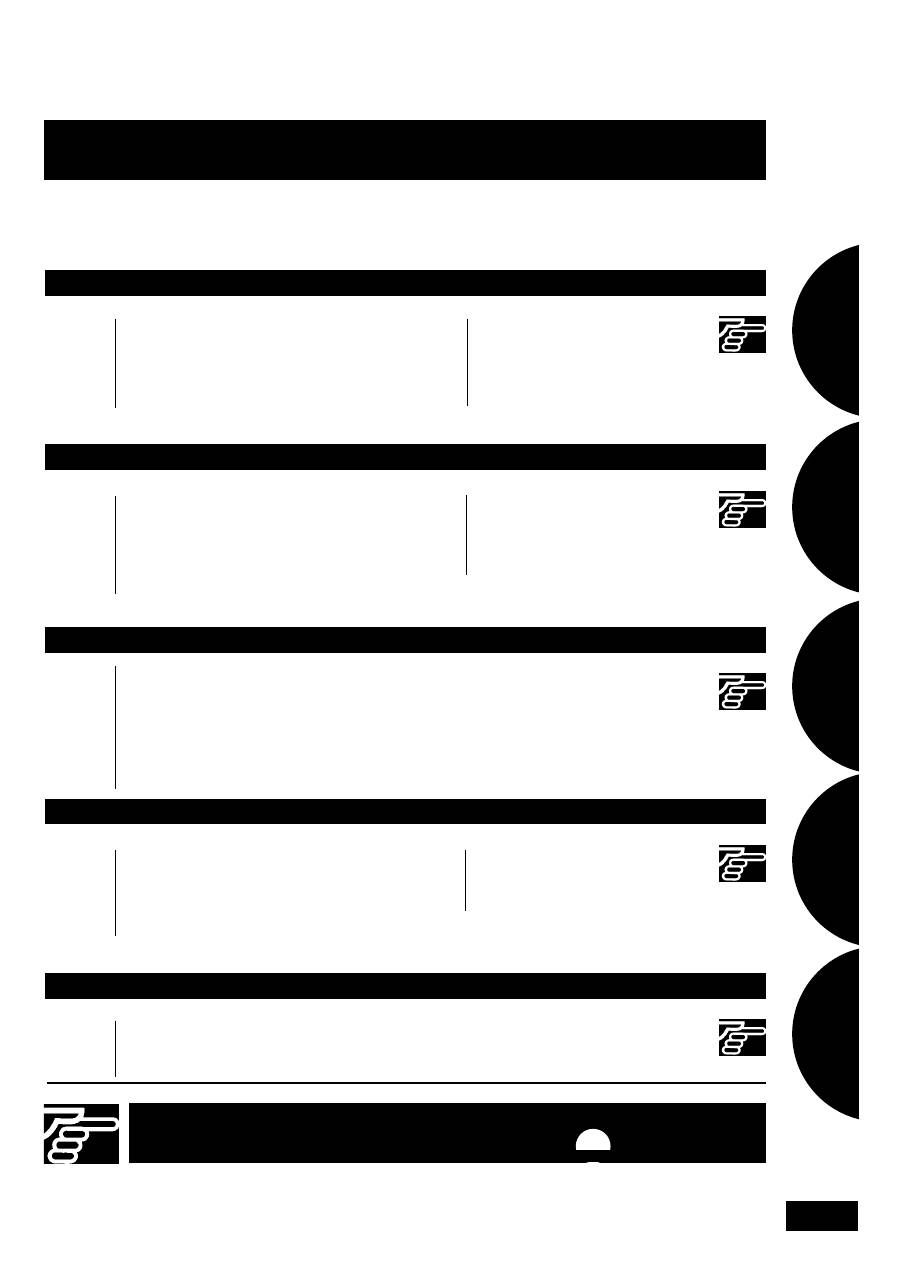
9
5
Pages
TABLEAUX DE REGLAGE
72-73
75-78
74-75
• A Rappel pré-réglages
• B Tableaux de débit
• C Exemple
4
1
2
3
Pages
MISE EN ROUTE
SOMMAIRE
Français
13
12-13
14-15
14-15
• A Préparation de la machine
• B Manutention
• C Attelage
• D Aplomb
Pages
REGLAGES
20-29
30-37
38-39
40-41
• A Réglage du débit
• B Traceurs latéraux
• C Réglage du terrage
• D Réglage de la herse
de recouvrement
Pages
ENTRETIEN
57
56-57
57
58-59
60-61
62-63
• A Entretien
• B Graissage
• C Vérification
• D Distribution
• E Caractéristiques techniques
• F Positions des Autocollants
14-15
16-17
17
18-19
• E Béquille
• F Hydraulique
• G Electrique/Electronique
• H Remplissage de la trémie
Pages
EQUIPEMENTS
64-65
64-65
66-67
68-69
• A Limiteur de profondeur
• B Soc Uniband
• C Modulation de débit MS
• D Compteur d'Ha
69
70-71
• E Sulky Tronic/Tramlines
• F Pneumatique basse
pression
Lire attentivement la notice avant l’utilisation. Comprendre son semoir
c’est mieux l’utiliser. En français suivre le symbole.
F
42-43
44-53
54-55
54-55
• E Roue d'entraînement
• F Dispositif de marquage
• G Débrayage 1/2 semoir
• H Vidange de la trémie
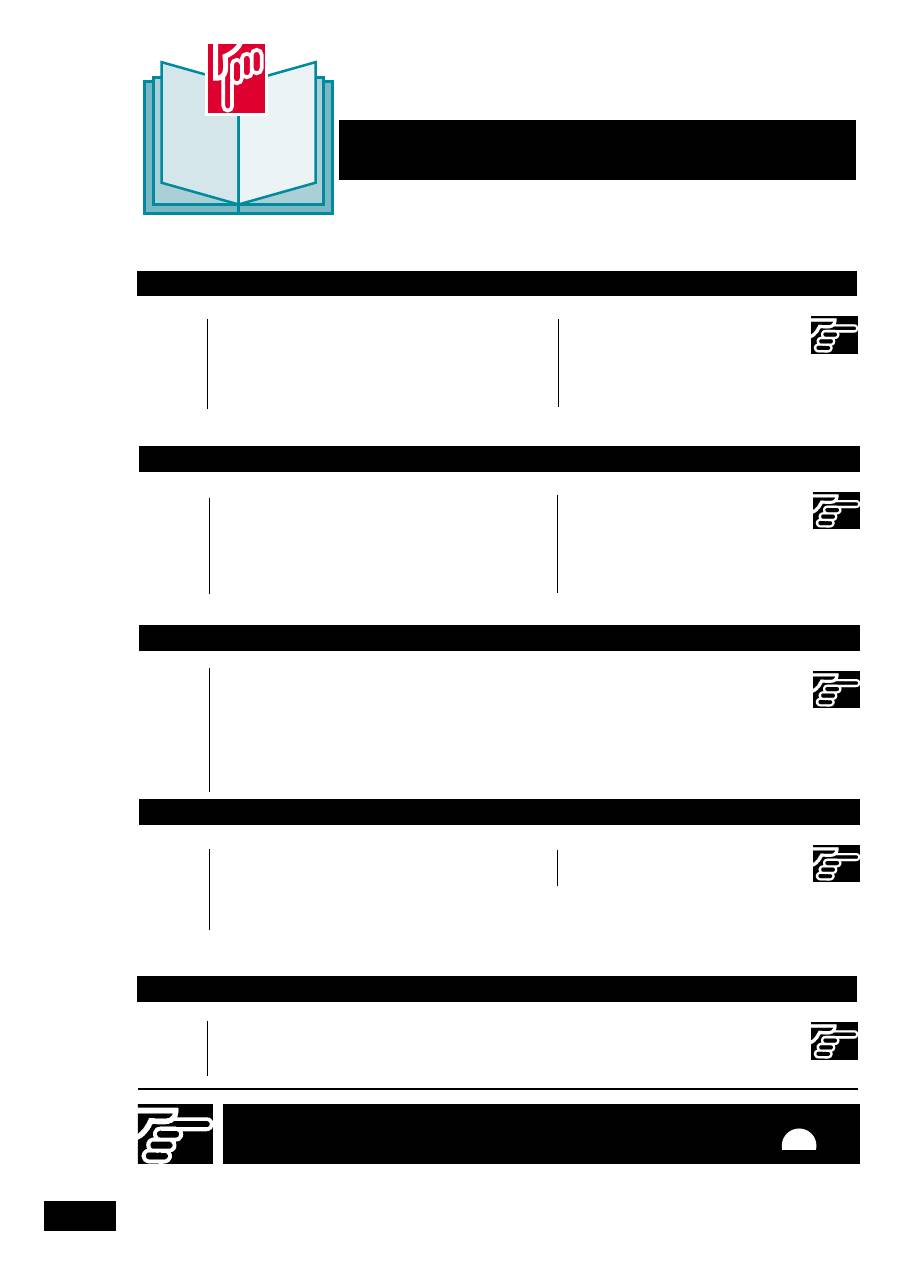
10
Read the manual carefully before use. Better understanding
means better and safer drilling. For English follow the symbol.
GB
CONTENTS
English
Pages
START-UP
13
12-13
14-15
14-15
• A Preparing the machine
• B Handling
• C Hitching
• D Vertical setting
Pages
SETTINGS
20-29
30-37
38-39
40-41
• A Setting the flow
• B Traceurs latéraux
• C Depth control
• D Adjusting the covering
harrow
Pages
MAINTENANCE
57
56-57
57
58-59
60-61
62-63
• A Maintenance
• B Lubrication
• C Checks
• D Distribution
• E Technical specifications
• F Sticker positions
14-15
16-17
17
18-19
• E Parking support
• F Hydraulics
• G Electrics/Electronics
• H Filling the seed box
Pages
ACCESSORIES
64-65
64-65
66-67
68-69
• A Depth limiter
• B Uniband share
• C MS flow rate modulation
• D Areameter
69
70-71
• E Sulky Tronic/Tramlines
• F Low-pressure Tyres
Pages
SETTING CHARTS
72-73
75-78
74-75
• A Pre-setting reminder
• B Seeding rate charts
• C Example
42-43
44-53
54-55
54-55
• E Drive wheel
• F Tramlining
• G Disengaging half of the
seed drill
• H Emptying the seed box
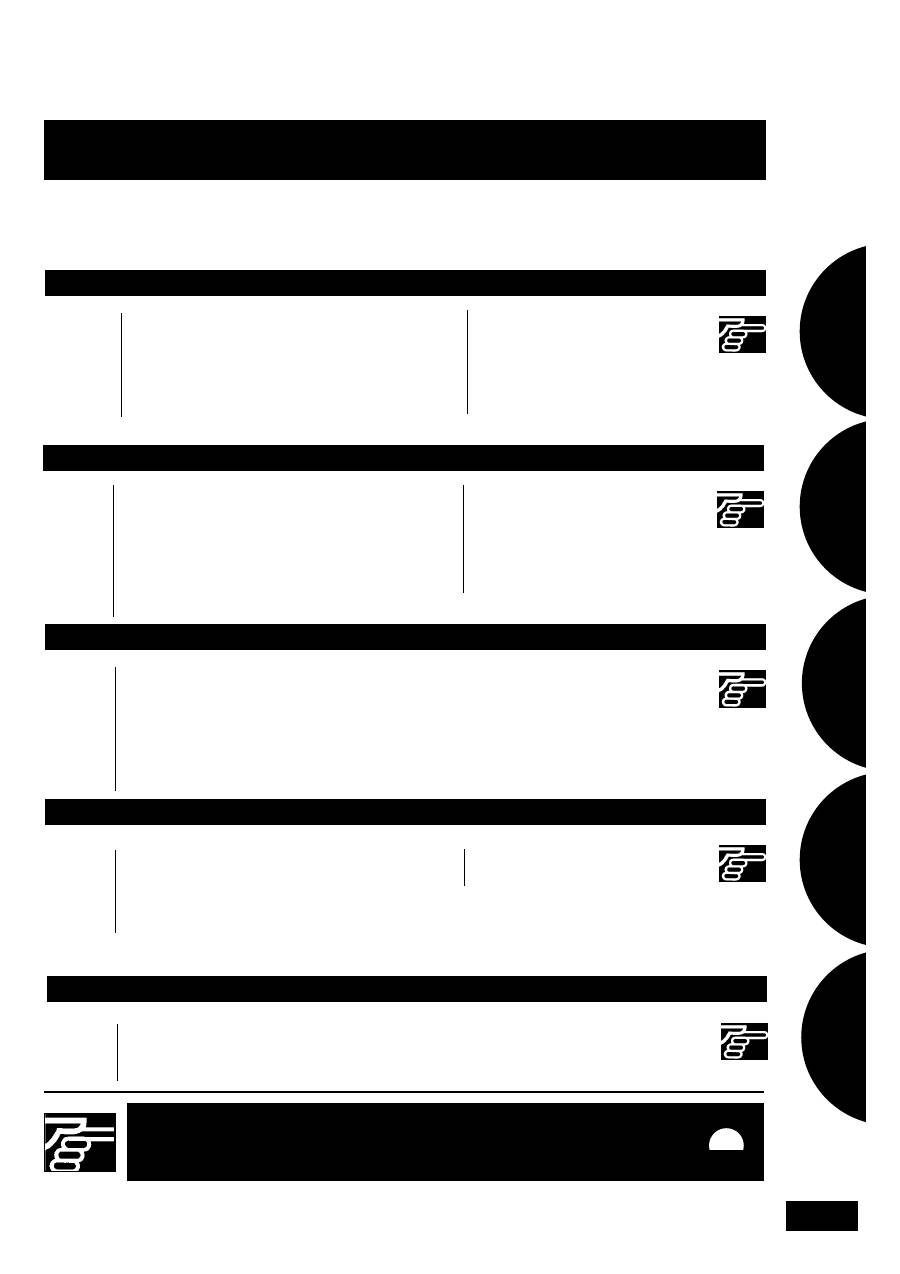
11
69
70-71
• E
MEDION/ULTRON ÌS
• F
Øèíû ñ íèçêèì äàâëåíèåì
ÑÎÄÅÐÆÀÍÈÅ
Ðóññêèé
Ñòð.
Ââîä â ýêñïëóàòàöèþ
13
12-13
14-15
14-15
• A Ïîäãîòîâêà àãðåãàòà
• B Âûïîëíåíèå ïîãðóçî÷íî-
• C Ðåãóëèðîâàíèå ñöåïíîãî óñòðîéñòâà
• D Âåðòèêàëüíîå ïîëîæåíèå
Íàñòðîéêè
20-29
30-37
38-39
40-41
• A
Íàñòðîéêà íîðìû âûñåâà
• B
Ìàðê¸ð ãðàíèö ïðîãîíà
• C
Êîíòðîëü ãëóáèíû
• D
Ðåãóëèðîâêà çàäåëûâàþùåé
áîðîíû
57
56-57
57
58-59
60-61
62-63
• A
Îáñëóæèâàíèå
• B
Ñìàçûâàíèå
• C
Ïðîâåðêà
• D
Âûñåâàþøèé àïïàðàò
• E
Òåõíè÷åñêàÿ ñïåöèôèêàöèÿ
• F
Ïîëîæåíèå ðàçìåòêè
14-15
16-17
17
18-19
• E
Ïàðêîâî÷íàÿ ñòîéêà
• F
Ãèäðàâëèêà
• G
Ýëåêòðîîáîðóäîâàíèå/
Ýëåêòðîíèêà
• H
Çàïîëíåíèå âûñåâàþùåãî àïïàðàòà
64-65
64-65
66-67
68-69
• A
Îãðàíè÷èòåëè ãëóáèíû
• B
Óñòðîéñòâî äëÿ îäíîïîëîñíîãî ïîñåâà
• C
Ìîäóëÿòîð ðàñõîäà MS
• D
Ñ÷åò÷èê ïëîùàäè
RUS
42-43
44-53
54-55
54-55
• E
Âåäóùåå êîëåñî
• F
Îáðàçîâàíèå òåõíîëîãè÷åñêîé êîëåè
• G
Îòêëþ÷åíèå ïîëîâèíû
ñåÿëêè
• H
Îïîðîæíåíèå
áóíêåðà
4
72-73
75-78
74-75
• A
Íàïîìèíàíèå ïî ïðåäâàðèòåëüíîé ðåãóëèðîâêå
• B
Òàáëèöû ðàñõîäà ïîñåâíîãî ìàòåðèàëà
• C
Ïðèìåð
5
1
2
3
Ñòð.
Ñòð.
Ñòð.
Ñòð. Òåõíè÷åñêîå îáñëóæèâàíèå
Êîìïëåêòóþùèå
Òàáëèöû ðåãóëèðîâêè
ðàçãðóçî÷íûõ ðàáîò
Ïåðåä ýêñïëóàòàöèåé âíèìàòåëüíî ïðî÷èòàéòå äàííîå
ðóêîâîäñòâî. Ëó÷øåå ïîíèìàíèå îáåñïå÷èò ýôôåêòèâíóþ
è áîëåå áåçîïàñíóþ ðàáîòó.
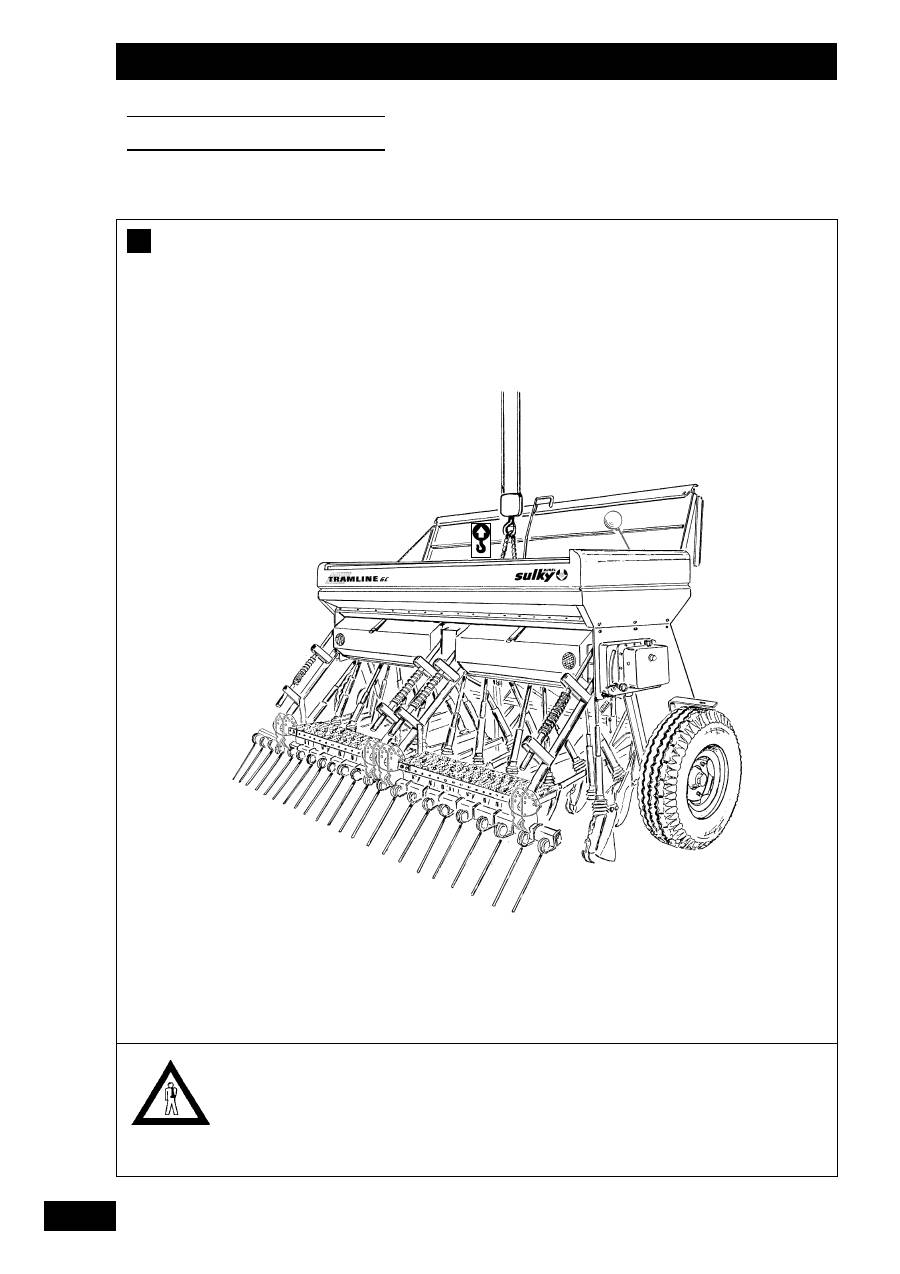
12
Mise en route
Start-up
Ne lever le semoir GC
qu’avec la trémie vide.
Assurez-vous qu’il n’y ait
personne autour de la
machine lors de la
manipulation.
Do not lift the GC unless
the seed box is empty.
Make sure that there is no-
one around the machine
during handling operations.
B
Ââîä â ýêñïëóàòàöèþ
Íå ïîäíèìàéòå GC åñëè
çàïîëíåí áóíêåð
Óáåäèòåñü, ÷òî âî âðåìÿ
ïðîâåäåíèÿ ïîãðóçî÷íî-
ðàçãðóçî÷íûõ ðàáîò ðÿäîì ñ
àãðåãàòîì íèêîãî íåò.
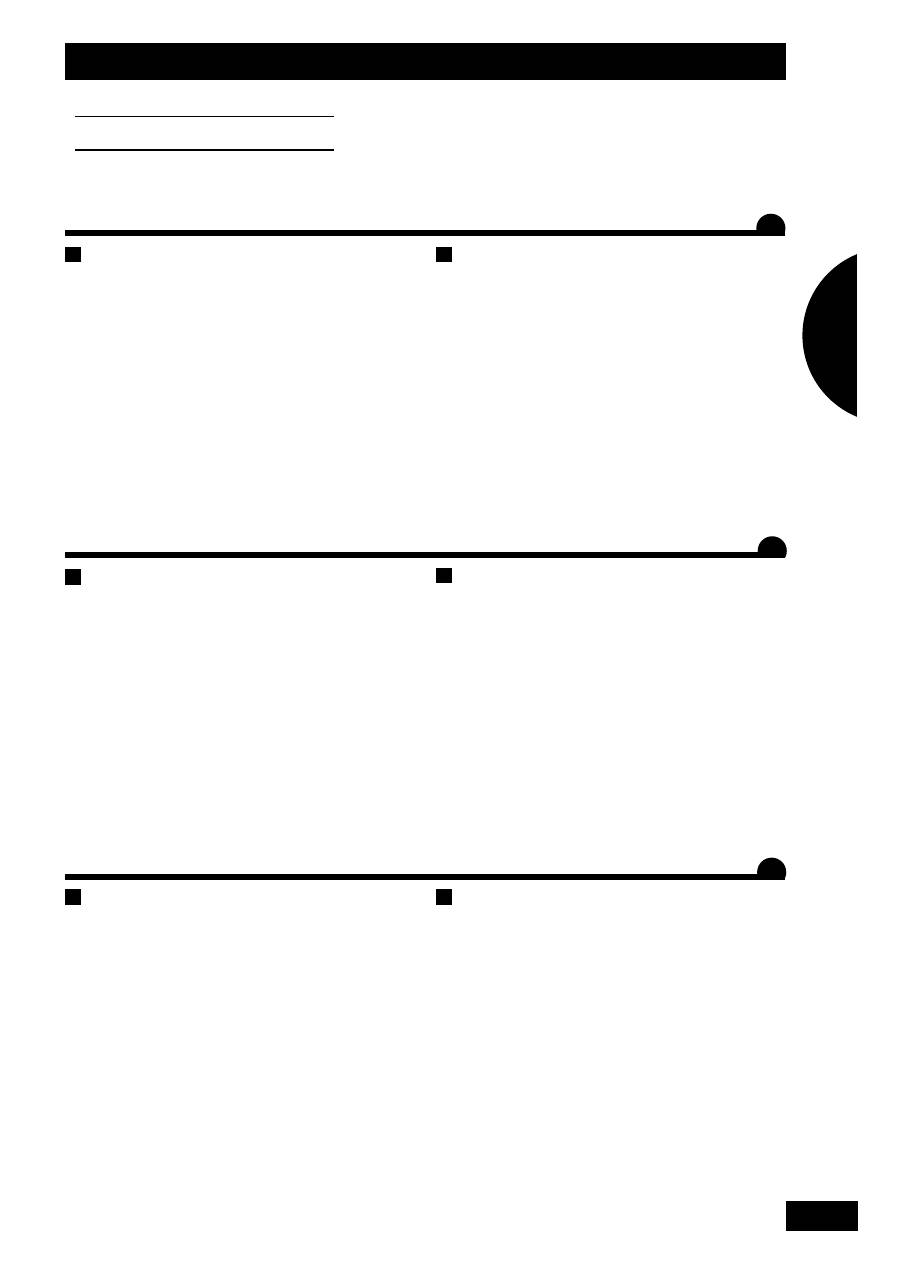
13
Ïîäãîòîâêà àãðåãàòà
Âûïîëíåíèå ïîãðóçî÷íî-ðàçãðóçî÷íûõ ðàáîò
* Ïîñëå ïîñòàâêè, ïðîâåðüòå, ÷òîáû ðÿäîâàÿ ñåÿëêà
áûëà ïîëíîñòüþ óêîìïëåêòîâàíà.
* Óáåäèòåñü, ÷òî â âûñåâàþùåì àïïàðàòå íåò
ïîñòîðîííèõ ïðåäìåòîâ.
* GC äîëæíà áûòü èñïîëüçîâàíà òîëüêî â òåõ öåëÿõ,
äëÿ êîòîðûõ îíà ïðåäíàçíà÷åíà.
* Ïðîâåðüòå, ÷òîáû çà âðåìÿ òðàíñïîðòèðîâêè
àãðåãàòó íå áûëè íàíåñåíû ïîâðåæäåíèÿ è íå
ïðîïàëè êàêèå-ëèáî êîìïëåêòóþùèå äåòàëè.
Áóäóò ðàññìàòðèâàòüñÿ òîëüêî òå ïðåòåíçèè,
êîòîðûå ñäåëàíû ïðè ïðè¸ìêå àãðåãàòà.
Î ëþáîì ïîâðåæäåíèè äîëæíî áûòü ñîîáùåíî
ïåðåâîç÷èêó.
* Èñïîëüçóéòå ñïåöèàëüíî ïðåäóñìîòðåííîå
êîëüöî
ñ ñîîòâåòñòâóþùåé ìàðêèðîâêîé
Ïðè ëþáîì ñîìíåíèè èëè âîçíèêíîâåíèè
ïðåòåíçèè, ïîæàëóéñòà, ñâÿçûâàéòåñü ñî ñâîèì
äèëåðîì.
- Îñóùåñòâëÿéòå ïîäúåì ðÿäîâîé ñåÿëêè áåç
çàäåëûâàþùåé áîðîíû è çàäíåãî ìàðêåðà
.
- Âûïîëíÿéòå âûãðóçêó ñ îñòîðîæíîñòüþ, ÷òîáû
íå ïîâðåäèòü êîæóõ.
GB
Preparing the machine
• On delivery, check that the seed drill is complete..
• Ensure that there are no foreign bodies in the seed box.
• The GC should only be used for tasks for which it has
been designed.
• Check that the machine has not suffered any damage
during transport and that no parts are missing. Only
claims made on taking delivery of the machine will be
considered.
Any damage should be reported to the delivery man.
If in doubt or in the event of any complaint, please contact
your dealer.
Handling
• Use the specially provided ring in the centre of the seed
box.
- Lift the seed drill without the covering harrow and rear
marker.
- Handle with care to avoid damage to the cover.
Préparation de la machine
• Au moment de la livraison, vérifier que le semoir est
complet.
• Assurez-vous qu'il n'y ait pas de corps étrangers dans la
trémie.
• Le GC ne doit être utilisé que pour les travaux pour
lesquels il a été conçu.
• Vérifier que la machine n’a subi aucun dommage en cours
de transport et qu’il ne manque aucune pièce.
Seules les réclamations formulées à réception de la
machine pourront être prises en considération.
Faire constater d’éventuels dégâts par le transporteur.
En cas de doute ou de litige, adressez-vous à votre
revendeur.
Manutention
• Utiliser l’anneau au centre de la trémie prévu à cet effet.
- lever le semoir, sans les équipements herse de
recouvrement et jalonneur arrière
- manœuvrer avec précaution afin d’éviter d’endommager
le couvercle.
F
A
B
A
B
A
B
1
Mise en route
Start-up
Ââîä â ýêñïëóàòàöèþ
RUS
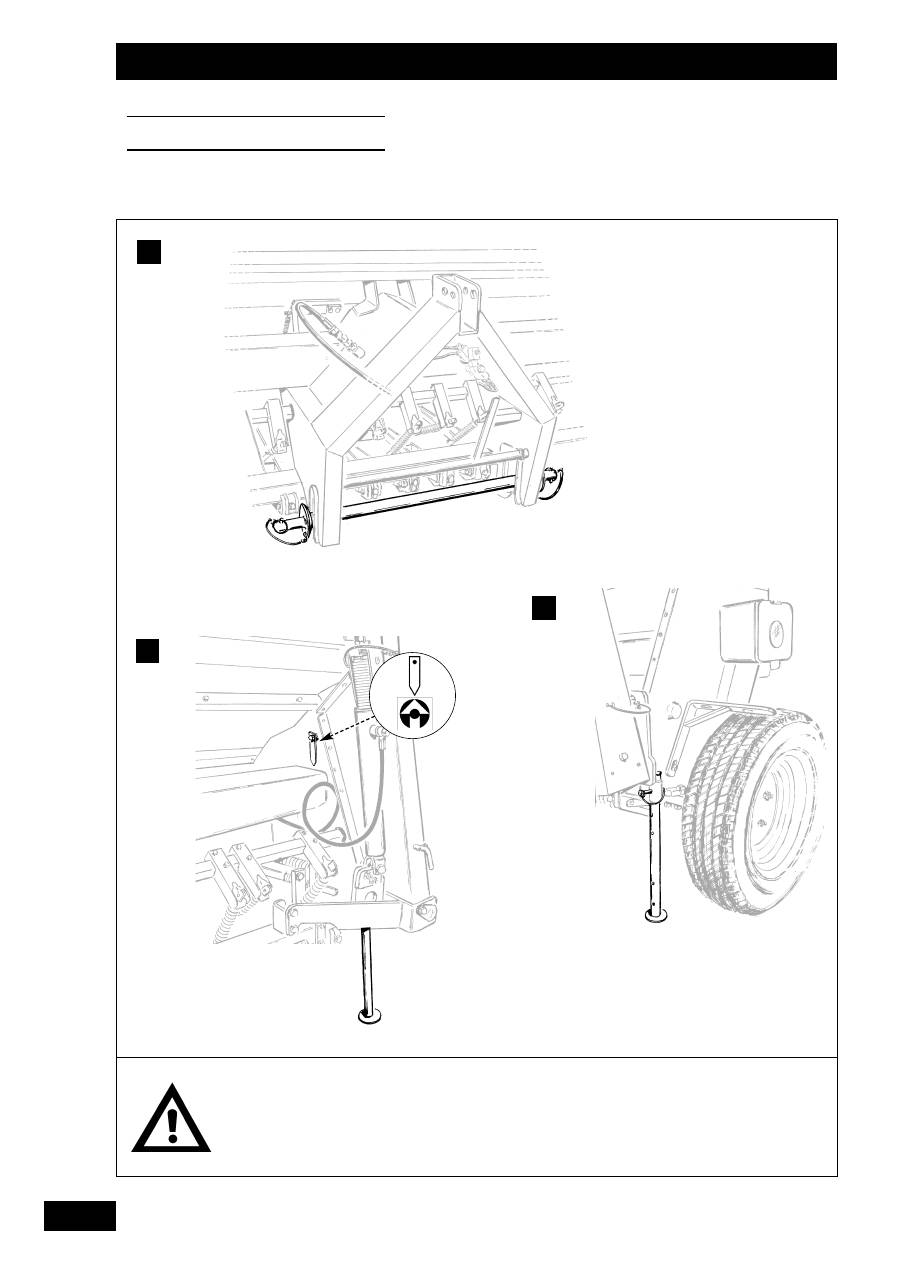
14
Mise en route
Start-up
Respecter l’aplomb de la
machine au travail.
Ne pas oublier de retirer la
béquille avant de travailler.
Check the vertical setting of
the machine before working.
Do not forget to remove the
parking support before
working.
D
C
E
Ââîä â ýêñïëóàòàöèþ
Ïðîâåðüòå âåðòèêàëüíîå
ïîëîæåíèå àãðåãàòà ïåðåä
íà÷àëîì âûïîëíåíèÿ ðàáîò.
Íå çàáóäüòå äåìîíòèðîâàòü
ïàðêîâî÷íóþ ñòîéêó ïåðåä
íà÷àëîì âûïîëíåíèÿ ðàáîò.
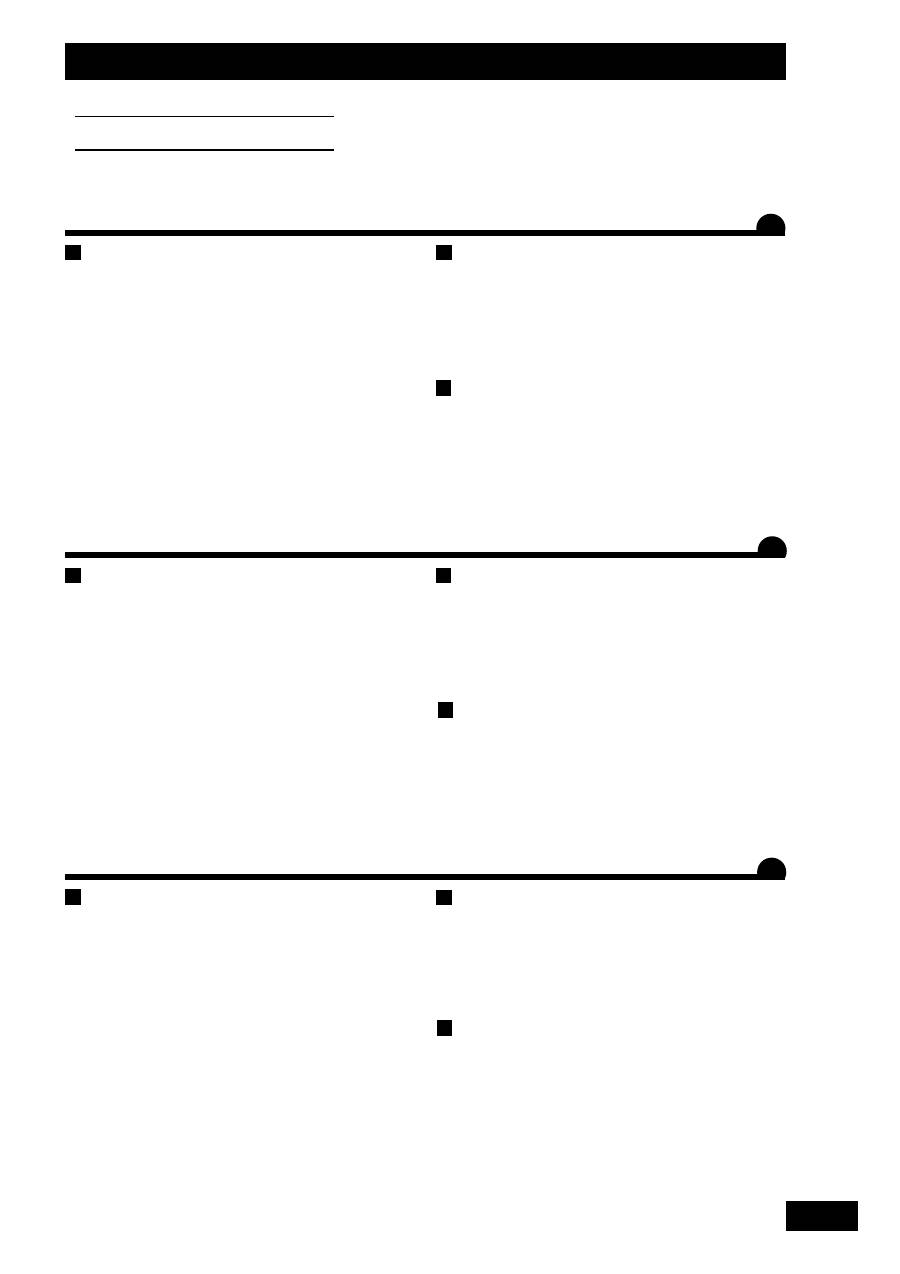
15
Ðåãóëèðîâàíèå ñöåïíîãî óñòðîéñòâà
* Ñåÿëêó GC, îáîðóäîâàííóþ àâòîìàòè÷åñêèì
øàðíèðíî çàêðåïë¸ííûì ïðèöåïíûì
óñòðîéñòâîì, ìîæíî ïðèñîåäèíÿòü:
- íåïîñðåäñòâåííî ê òðàêòîðó,
- èëè ê ïî÷âîîáðàáàòûâàþùèì
ïðèñïîñîáëåíèÿì
* Ïðèâàðåííûé øòûðü äîëæåí áûòü òî÷íî
íàïðàâëåí âíèç äëÿ òîãî, ÷òîáû ïðåäîòâðàòèòü
âðàùåíèå ñöåïíîé ñåðüãè.
* Êîãäà ðÿäîâàÿ ñåÿëêà íàõîäèòñÿ â ðàáî÷åì
ïîëîæåíèè, ãèäðàâëè÷åñêàÿ ïîäúåìíàÿ ñèñòåìà
òðàêòîðà äîëæíà âñåãäà áûòü îïóùåíà è
íàõîäèòüñÿ â ïëàâàþùåé ïîçèöèè.
Âåðòèêàëüíîå ïîëîæåíèå
Ïàðêîâî÷íàÿ ñòîéêà
* Óñòàíîâèòå àãðåãàò ãîðèçîíòàëüíî ïîâåðõíîñòè
çåìëè.
* Îòðåãóëèðóéòå âåðòèêàëüíîå ïîëîæåíèå ñ
ïîìîùüþ öåíòðàëüíîé òÿãè òðàêòîðà,
îðèåíòèðóÿñü ïî ñòðåëêå íà ëåâîé ñòîðîíå ñåÿëêè
ïîä âûñåâàþùèì àïïàðàòîì.
* Ïåðåä òåì êàê àãðåãàò áóäåò óñòàíîâëåí íà çåìëþ
è îòöåïëåí, óñòàíîâèòå ïàðêîâî÷íóþ ñòîéêó.
GB
Hitching
• Equipped with an automatic floating hitch, the GC seed
drill may be hitched up:
- directly to the tractor,
- or to a cultivating implement.
• The welded pin should be pointing downwards to prevent
the drawbar rotating.
• When the drill is in the working position, the tractor's
hydraulic lift system should always be fully lowered and in
the floating position.
Vertical setting
• Lay the machine on horizontal ground.
• Adjust the vertical setting with the top link of the tractor
whilst referring to the arrow on the left-hand side of the
drill beneath the seed box.
Parking support
• Before laying the machine on the ground and unhitching
it, fit the parking support.
Attelage
• Equipé d'un attelage automatique oscillant, le semoir GC
peut être attelé :
- soit directement sur le tracteur,
- soit sur un outil de travail du sol.
• Pour empêcher la barre d'attelage de tourner, le plot de
positionnement doit être tourné vers le bas.
• En position de travail du semoir, le relevage hydraulique
du tracteur doit toujours être abaissé à fond et flottant.
Aplomb
• Poser l'appareil sur un sol horizontal.
• Règler l'aplomb à l'aide du 3ème point du tracteur en
vous aidant de la flèche de contrôle qui est fixée côté
gauche du semoir sous la trémie.
Béquille
• Avant de poser la machine au sol et de la dételer, mettre
la béquille en position.
F
C
D
C
D
C
D
Mise en route
Start-up
E
E
E
Ââîä â ýêñïëóàòàöèþ
RUS
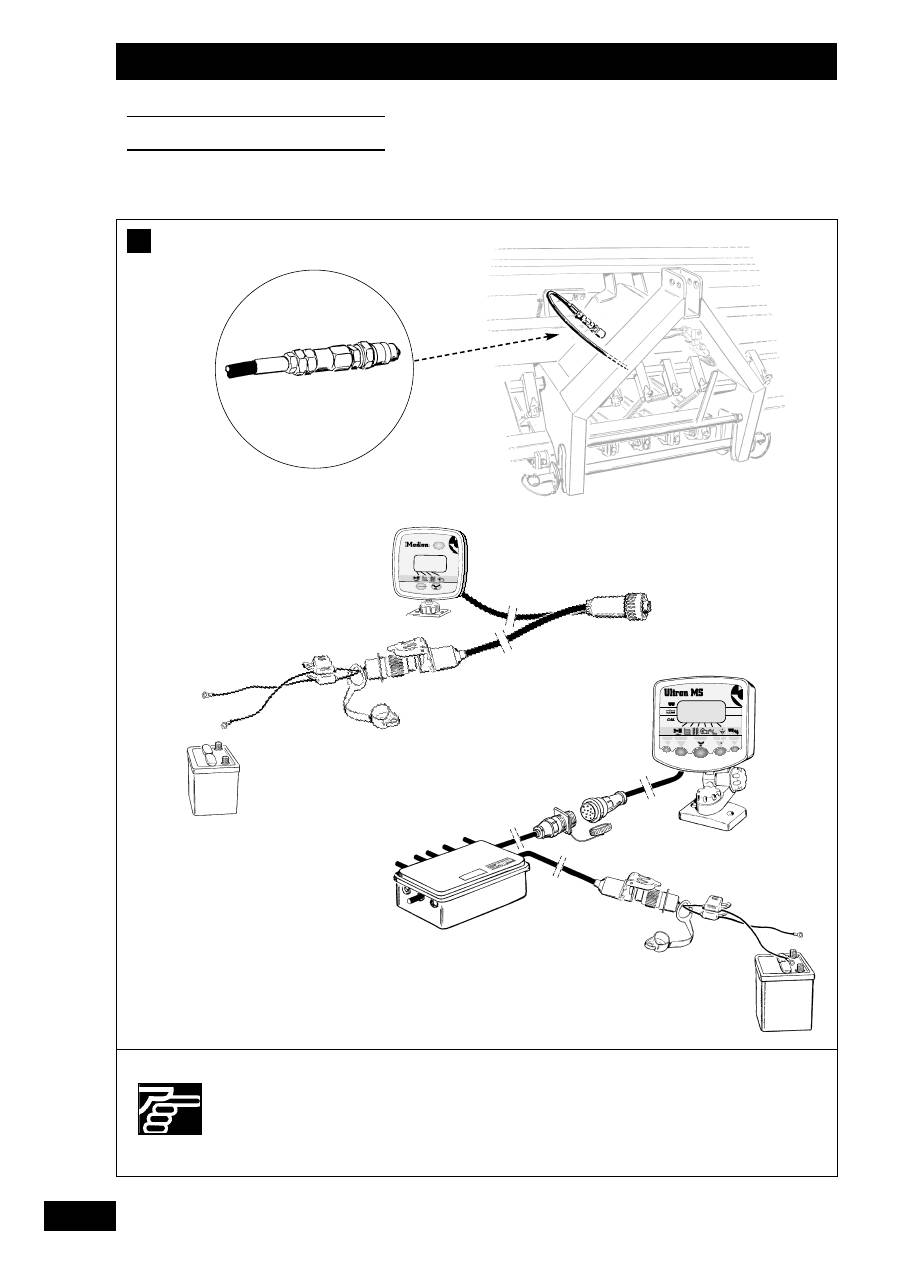
16
Mise en route
Start-up
Il est recommandé de
réaliser l’alimentation
directement depuis la
batterie pour éviter toute
microcoupure.
Veillez à garder propre la
prise hydraulique Push Pull.
We recommend that the unit
is connected directly to the
battery to ensure a constant
power supply.
Make sure that the hydraulic
push-pull connector is kept
clean.
ú ”Ǭ ∏⁄¬ Ǭ ⁄ÀÕáŒ∏Ô¬ ‘”Œ” ¬ÃÀ¬ áÑ ¬Ñá⁄á ‘¬ ¬â Ãáòጔœ Ç ‘”ŒÃ¬ÃÀ á∑”⁄. ’¬ ¡á∑¤â∏⁄¬ ⬜”Ã⁄À ”Çá⁄∏ ‘á Քǔòä “⁄”»Õ¤ ‘¬ ¬â Ãáòጔœ Ç ‘”ŒÃ¬ÃÀ á∑”⁄.
F
1
-
1
+
4
+
1
STOP
OK
Ha
0
+
%
-
%
+
1
CAL
4 .
Ââîä â ýêñïëóàòàöèþ
Ìû ðåêîìåíäóåì, ÷òîáû
àãðåãàò ñîåäèíÿëñÿ
íåïîñðåäñòâåííî ñ
àêêóìóëÿòîðîì äëÿ
îáåñïå÷åíèÿ ïîñòîÿííîãî
ýíåðãîñíàáæåíèÿ.
Óáåäèòåñü, ÷òî ãèäðàâëè÷åñêèé
çàùåëêèâàþùèéñÿ ñîåäèíèòåëü
ñîäåðæèòñÿ â ÷èñòîòå.
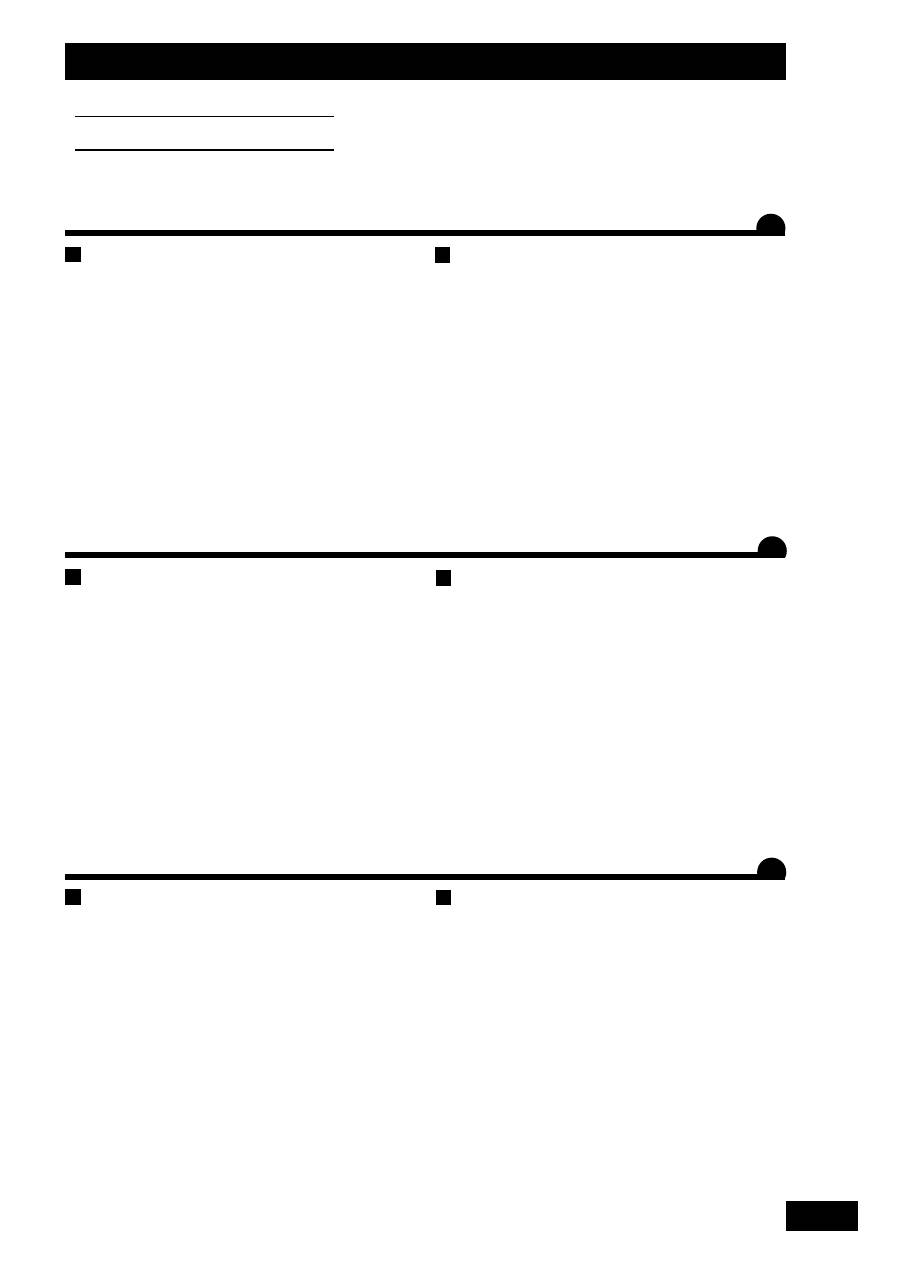
17
Ãèäðàâëèêà
- Ðàáîòà ìàðêåðà
Ýëåêòðîîáîðóäîâàíèå/Ýëåêòðîíèêà
*  ãèäðàâëè÷åñêîé ñèñòåìå GC Òðýìëàéí
èñïîëüçóåòñÿ òîëüêî íåðåâåðñèâíûé êëàïàí:
- Ïîñëå- è äîâñõîäîâàÿ ñèñòåìà ìåõàíèçàöèè
ðàñòåíèåâîäñòâà ïóò¸ì ñîçäàíèÿ åäèíîé êîëè
äëÿ âñåõ ìàøèí
* Ñèñòåìå êîíòðîëÿ òðýìëàéí òðåáóåòñÿ èñòî÷íèê
ïèòàíèÿ íàïðÿæåíèåì 12 Â ïîñòîÿííîãî òîêà (c
îáîçíà÷åííûìè ïîëþñàìè + è -)
* Ýëåêòðè÷åñêèå ïðîâîäà îò àêêóìóëÿòîðà ê
àãðåãàòó ïîñòàâëÿþòñÿ âìåñòå ñ ýëåêòðè÷åñêèì
îáîðóäîâàíèåì.
* Ìû ðåêîìåíäóåì, ÷òîáû àãðåãàò áûë ïîäñîåäèíåí
ê àêêóìóëÿòîðó òðàêòîðà íàïðÿìóþ äëÿ
îáåñïå÷åíèÿ ïîñòîÿííîãî ñíàáæåíèÿ
ýëåêòðîýíåðãèåé.
ÄÎÏÎËÍÈÒÅËÜÍÀß ÈÍÔÎÐÌÀÖÈß ÏÎ
ÝËÅÊÒÐÎÍÍÎÌÓ ÁËÎÊÓ ÑÎÄÅÐÆÈÒÑß Â
ÈÍÑÒÐÓÊÖÈßÕ Ê MEDION ÈËÈ ULTRON MS
GB
Hydraulics
• The GC Tramlines's hydraulic circuit only requires a single-
acting valve:
- Marker operation
- Post and pre-emergence tramlining
Electrics/Electronics
• The tramline control system requires a 12 V DC power
supply (+ and - poles identified).
• The wiring from the battery to the unit is supplied with the
appliance.
• We recommend that the unit is connected directly to the
tractor battery to ensure a constant power supply.
ADDITIONAL INFORMATION ON THE
ELECTRONIC UNIT IS CONTAINED IN THE
MEDION and ULTRON MS
Hydraulique
• Le circuit hydraulique du GC Tramlines ne nécessite qu'un
simple effet :
- Fonctionnement des traceurs
- Fonctionnement du jalonnage post et pré levée
Electrique / Electronique
• Le système de commande de jalonnage nécessite une
alimentation en 12 volts continu. (pôles + et - repérés)
• Le câblage batterie boîtier est fourni avec l'appareil.
• Il est recommandé de réaliser l'alimentation directement
depuis la batterie du tracteur pour éviter toute micro-
coupure.
INFORMATIONS COMPLEMENTAIRES
SUR LE BOITIER ELECTRONIQUE DANS LE MANUEL
MEDION et ULTRON MS
F
F
F
F
Mise en route
Start-up
G
G
G
Ââîä â ýêñïëóàòàöèþ
RUS
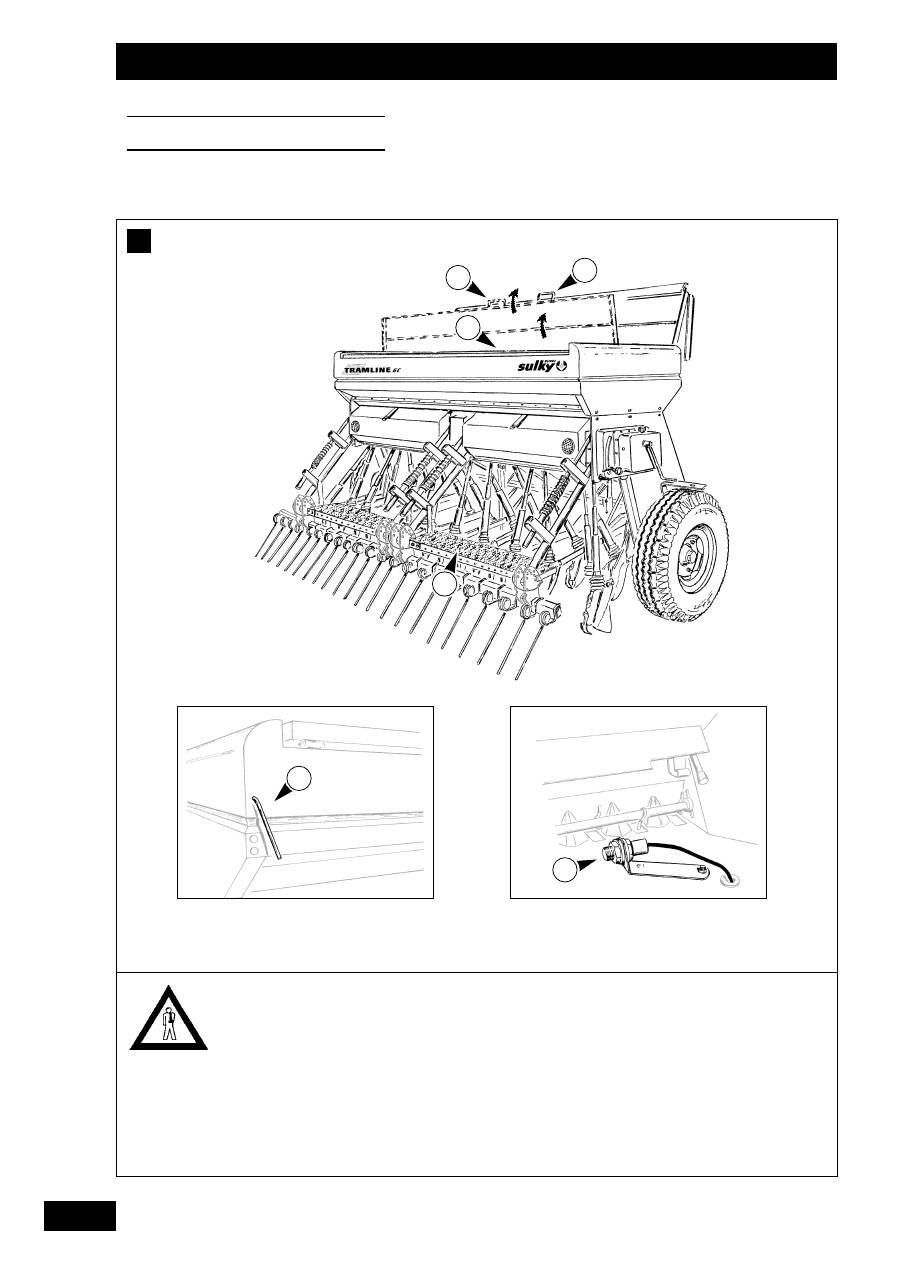
18
Mise en route
Start-up
H
Attention à la rotation de
l'arbre d'agitateur.
Vérifier qu'aucun corps
étranger ne se trouve dans la
trémie.
Il est conseillé de ne pas
laisser de graines à
l'intérieur de la trémie afin
d'éviter d'éventuels dégats
causés par les rongeurs.
Il est formellement interdit
de monter sur le semoir
pendant le travail.
Beware of the rotating
agitator shaft.
Check that there are no
foreign bodies in the seed
box.
It is recommended not to
leave grain inside the seed
box to avoid possible
damage by rodents.
It is strictly forbidden to
stand on the drill when
operating.
1
1/2
0
4
5
1
2
3
3
Ââîä â ýêñïëóàòàöèþ
Îñòåðåãàéòåñü
âðàùàþùåãîñÿ âàëà
ìåøàëêè.
Ïðîâåðüòå, ÷òîáû â
âûñåâàþùåì àïïàðàòå íå
áûëî ïîñòîðîííèõ
ïðåäìåòîâ.
Ðåêîìåíäóåòñÿ íå
îñòàâëÿòü çåðíî âíóòðè
âûñåâàþùåãî àïïàðàòà âî
èçáåæàíèå âîçìîæíîé
ïîð÷è çåðíà ãðûçóíàìè.
Êàòåãîðè÷åñêè çàïðåùàåòñÿ
ñòîÿòü íà ñåÿëêå âî âðåìÿ
åå ðàáîòû.
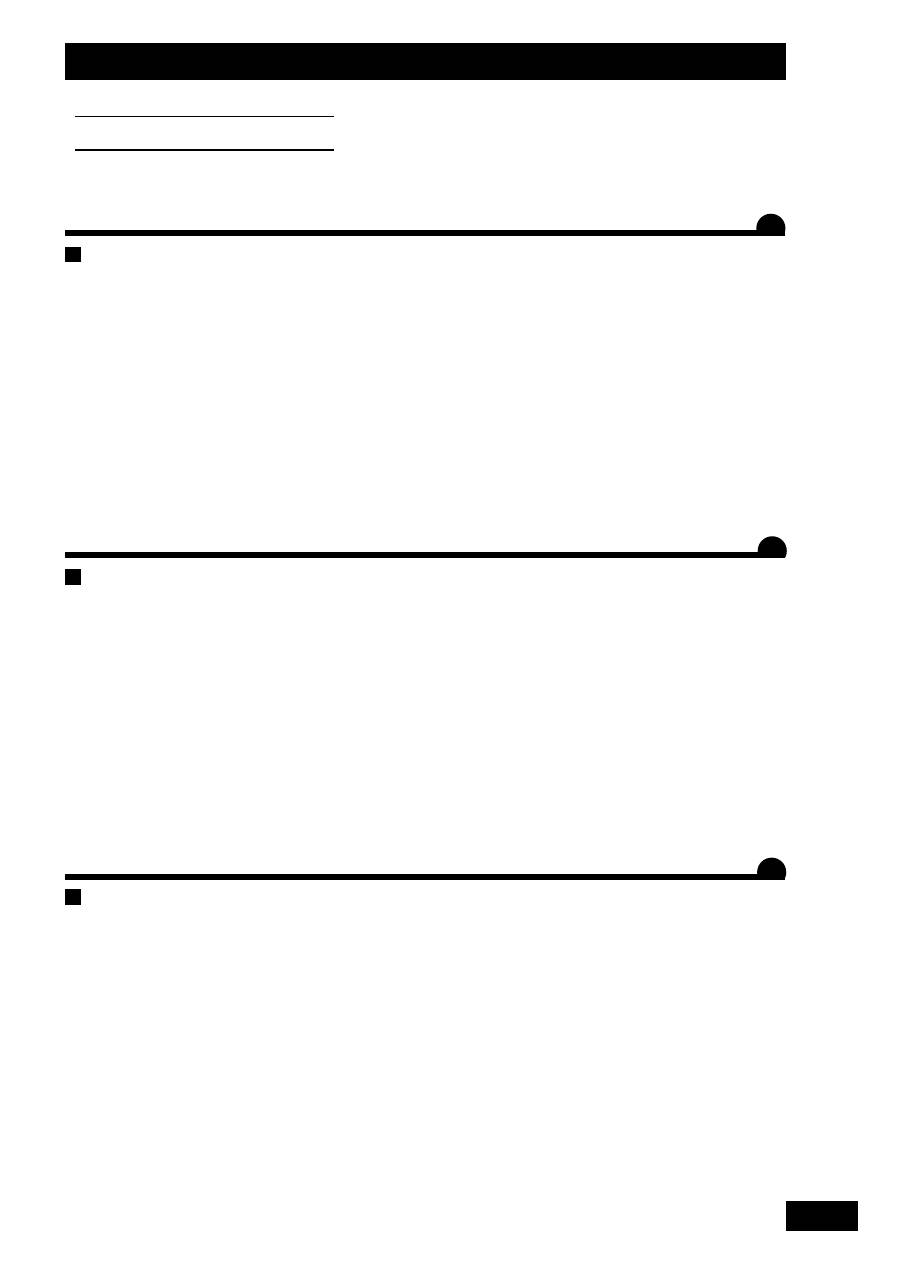
19
Çàïîëíåíèå âûñåâàþùåãî àïïàðàòà
a)
Ïîãðóçî÷íàÿ ïëàòôîðìà
b)
Çàïîëíåíèå âûñåâàþùåãî àïïàðàòà
!
*
Ïëàòôîðìà èñïîëüçóåòñÿ äëÿ ëåãêîé çàãðóçêè,
êîãäà ðÿäîâàÿ ñåÿëêà ëåæèò íà çåìëå. Íå
ðåêîìåíäóåòñÿ çàãðóæàòü âûñåâàþùèé àïïàðàò
èëè ïîäíèìàòüñÿ íà ïëàòôîðìó, êîãäà ðÿäîâàÿ
ñåÿëêà ïîäíÿòà.
* Îòêðîéòå ïåðâóþ êðûøêó ñ ðóêîÿòêîé .
Ðàñïîëîæèòå â âåðõíåé ÷àñòè âòîðîé êðûøêè,
äî
òîãî êàê îòêðîåòå âûñåâàþùèé àïïàðàò
ïîëíîñòüþ ñ ïîìîùüþ âòîðîé ðóêîÿòêè .
* Ïðîâåðüòå, ÷òîáû â âûñåâàþùåì àïïàðàòå
íå
áûëî ïîñòîðîííèõ ïðåäìåòîâ.
* Óðîâåíü çåðíà ìîæíî ïðîâåðèòü ñ ìåñòà
âîäèòåëÿ ïðè ïîìîùè ìåõàíè÷åñêîãî
èíäèêàòîðà óðîâíÿ .
* Ïðè èñïîëüçîâàíèè äîïîëíèòåëüíî
çàêàçûâàåìîãî óçëà ULTRON MS,
ðåãóëèðóåìûé äàò÷èê "íèçêèé óðîâåíü çåðíà
â ÿùèêå" ïîìåùàåòñÿ âíóòðü âûñåâàþùåãî
àïïàðàòà (íèæíåå ïîëîæåíèå äëÿ ìåëêèõ
çåðåí, âûñîêîå ïîëîæåíèå äëÿ êðóïíûõ
çåðåí).
GB
Filling the seed box
a) Loading platform
• The platform
is used for easier loading when the seed
drill is laid on the ground. It is not recommended to load
the seed box or climb on to the platform when the seed
drill is raised.
b) Filling the seed box
• Open the first cover with the handle
.
Place on top of the second cover before opening the seed
box completely with the second handle
.
• Check that there are no foreign bodies in the seed box.
• The seed level can be checked from the driver's position
by means of a mechanical level indicator
.
• With the optional ULTRON MS unit, an adjustable "seed
box low"
!
sensor is placed inside the seed box (low
position for small grain, high position for large grain).
Remplissage de la trémie
a) Passerelle de chargement
• La passerelle
sert à faciliter le chargement lorsque le
semoir est posé à terre, il est recommandé de ne pas
charger ou monter sur la passerelle lorsque le semoir est
levé.
b) Remplissage de la trémie
• Ouvrir le premier capot à l'aide de la poignée
.
Le poser sur le deuxième capot avant d'ouvrir
complètement la trémie avec la deuxième poignée
.
• Vérifier qu'aucun corps étranger ne se trouve dans la
trémie.
• Un indicateur de niveau mécanique
permet de vérifier
le niveau de semence dans la trémie depuis le poste de
conduite.
• Avec l'option ULTRON MS un capteur
!
de fin de trémie
réglable est placé dans la trémie.
(position basse pour petite graine, position haute pour
grosse graine).
F
H
H
H
Mise en route
Start-up
Ââîä â ýêñïëóàòàöèþ
RUS

